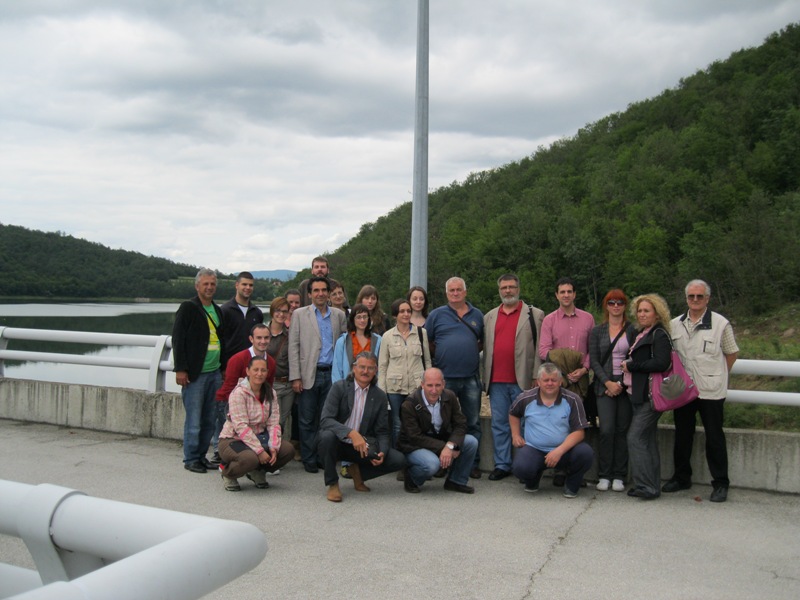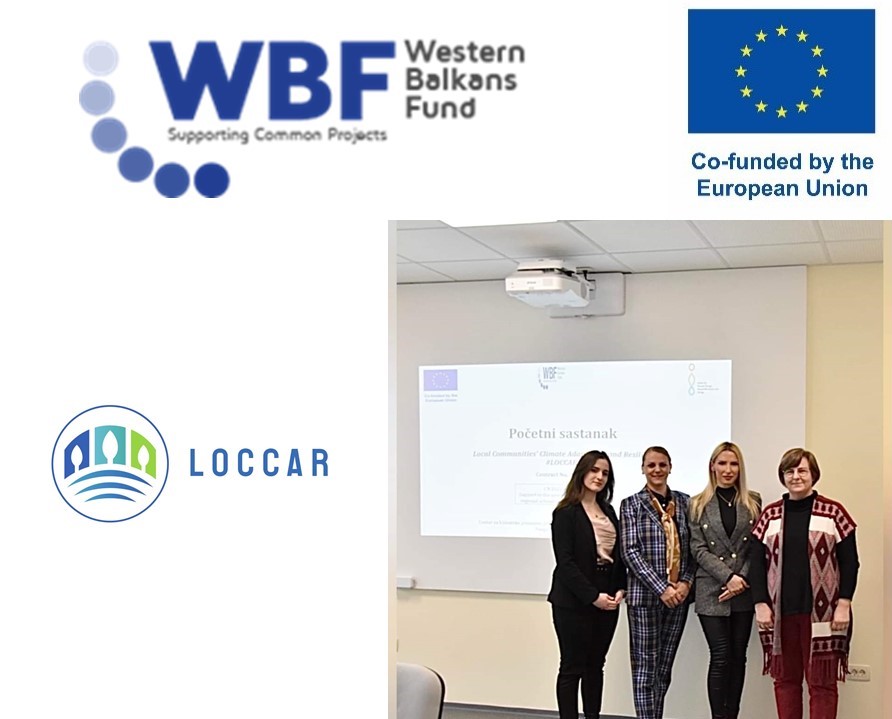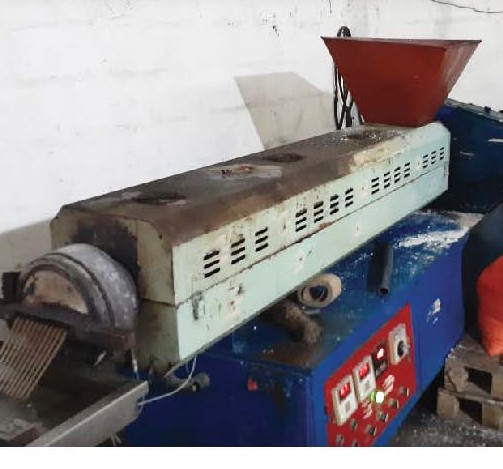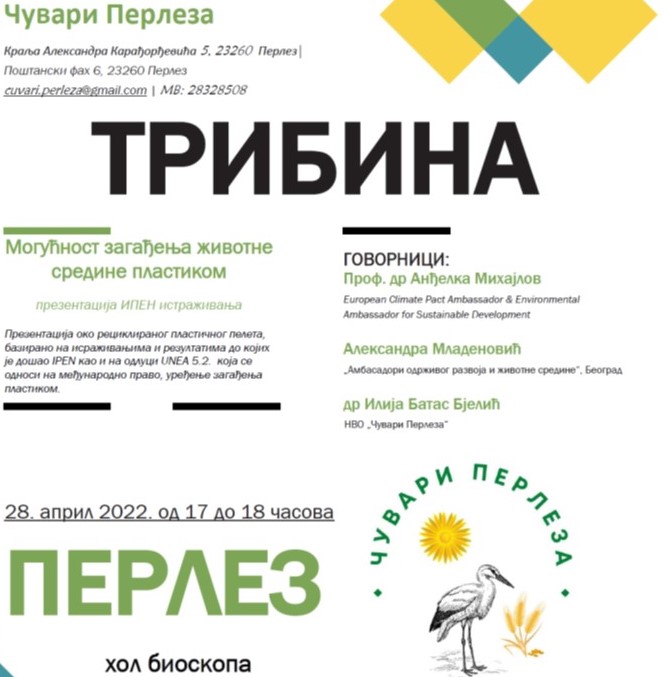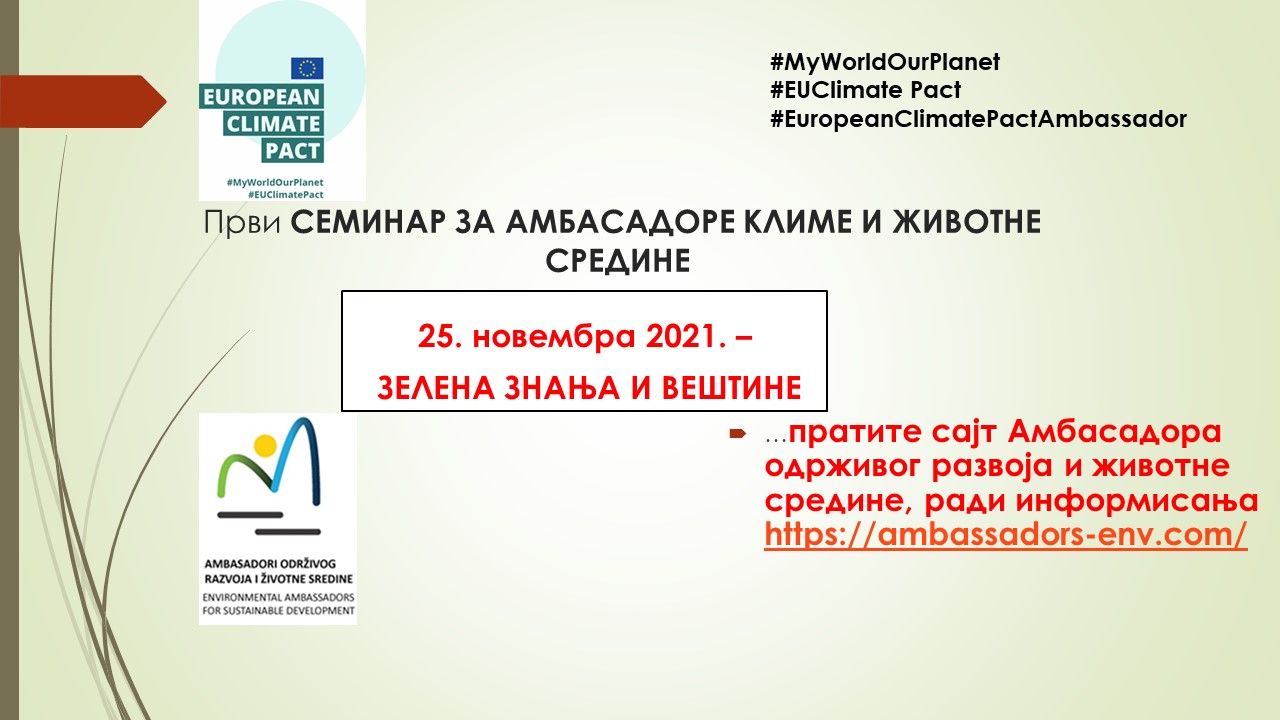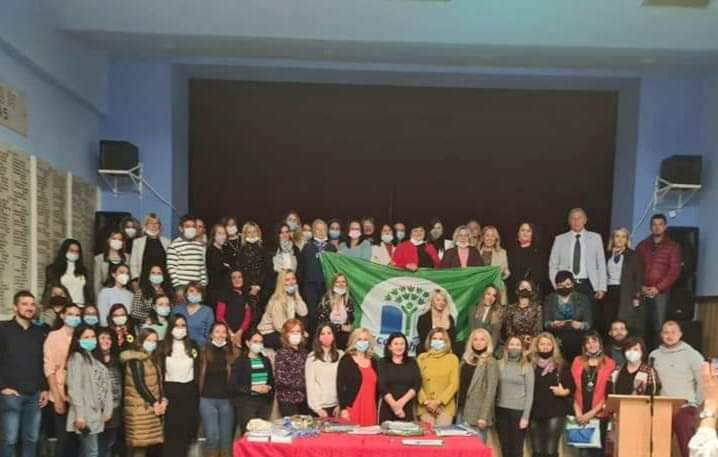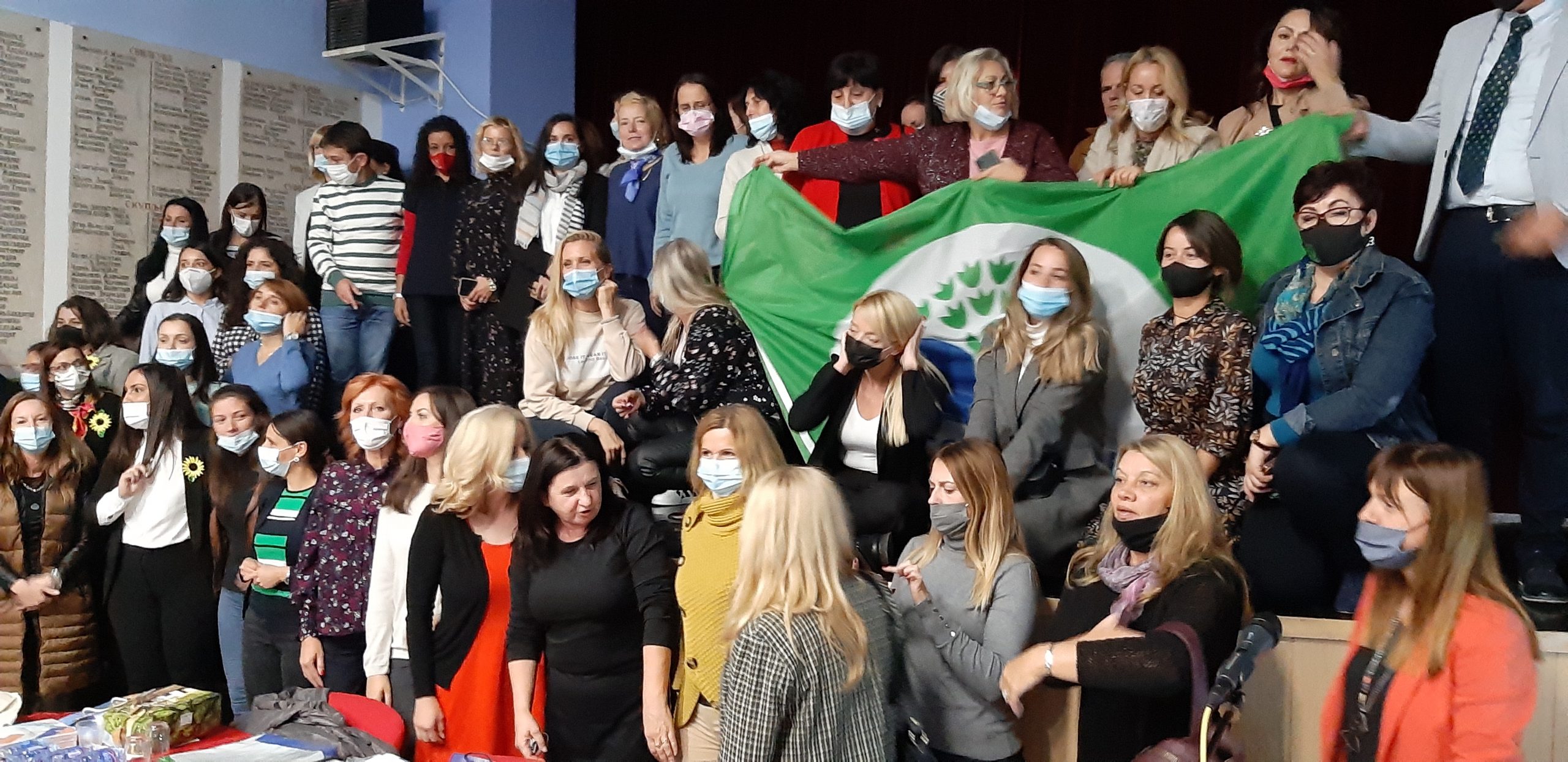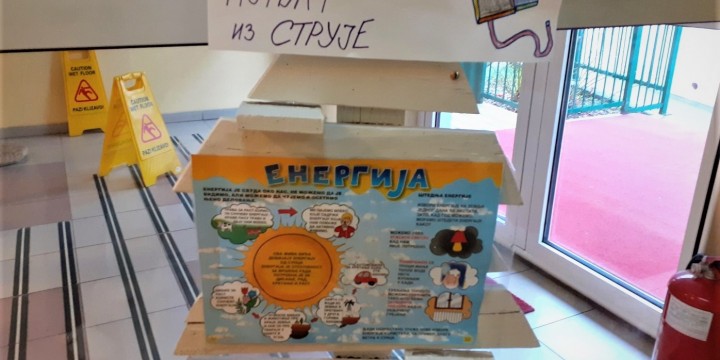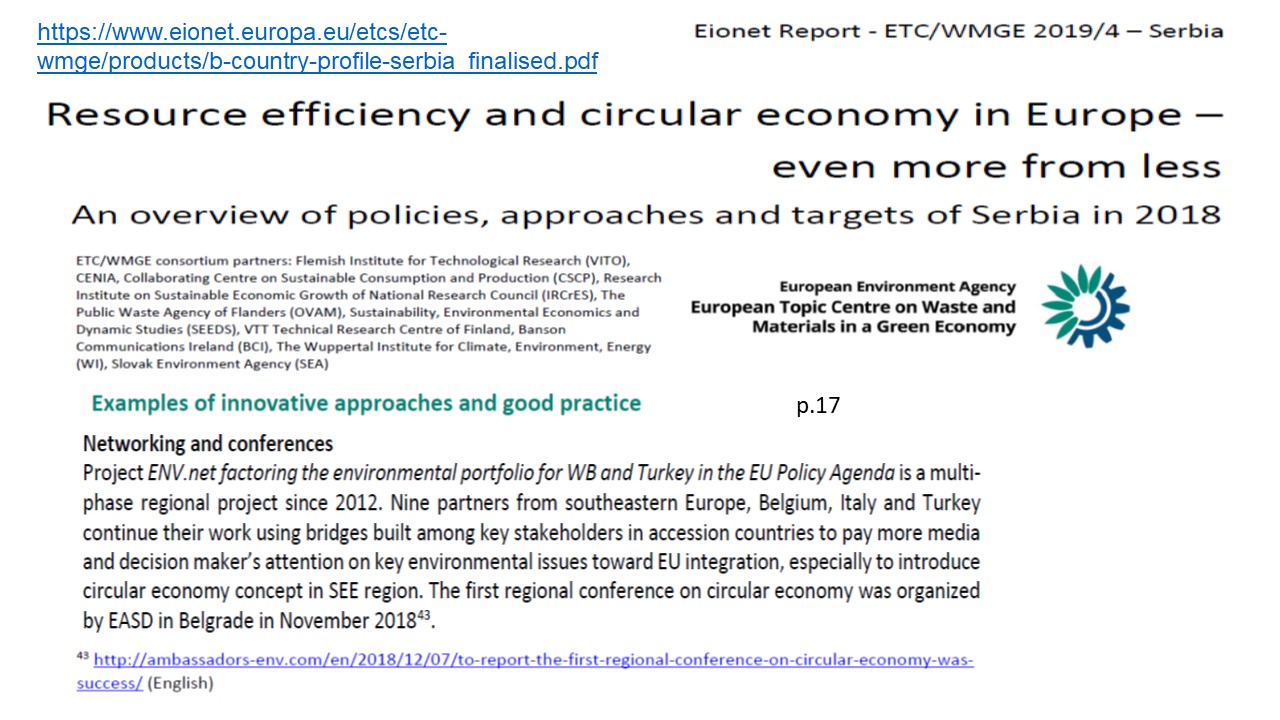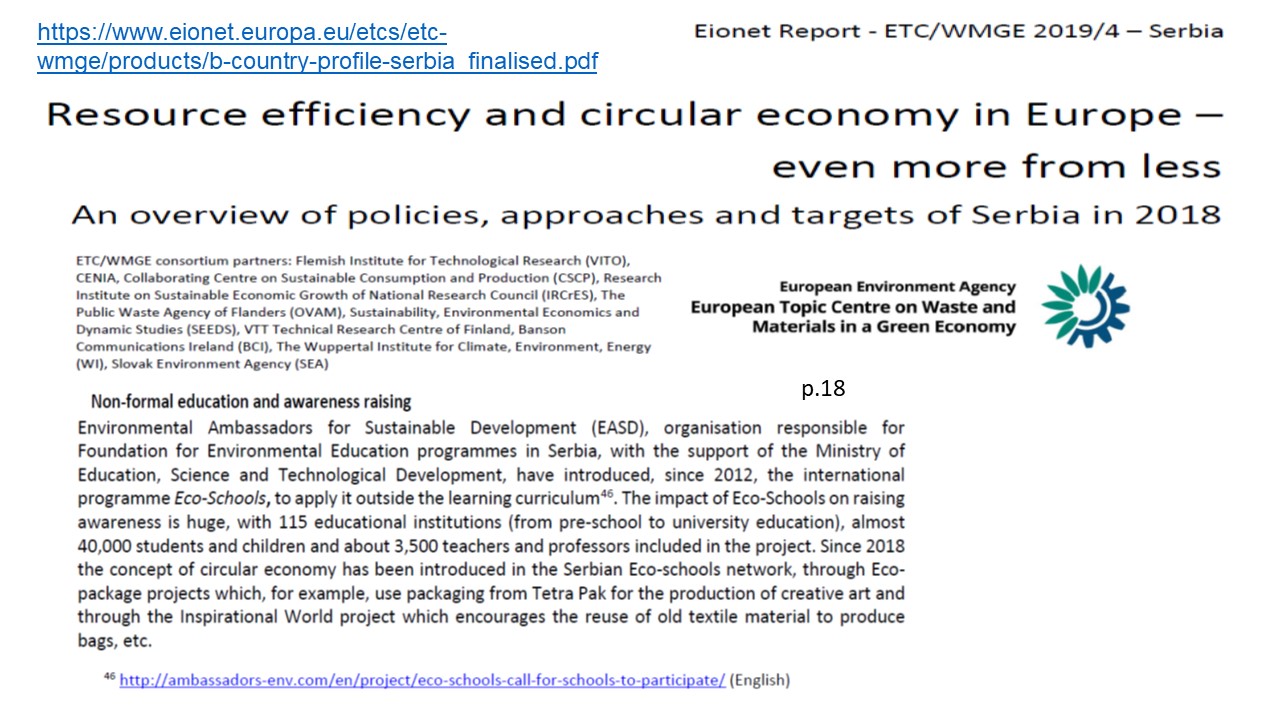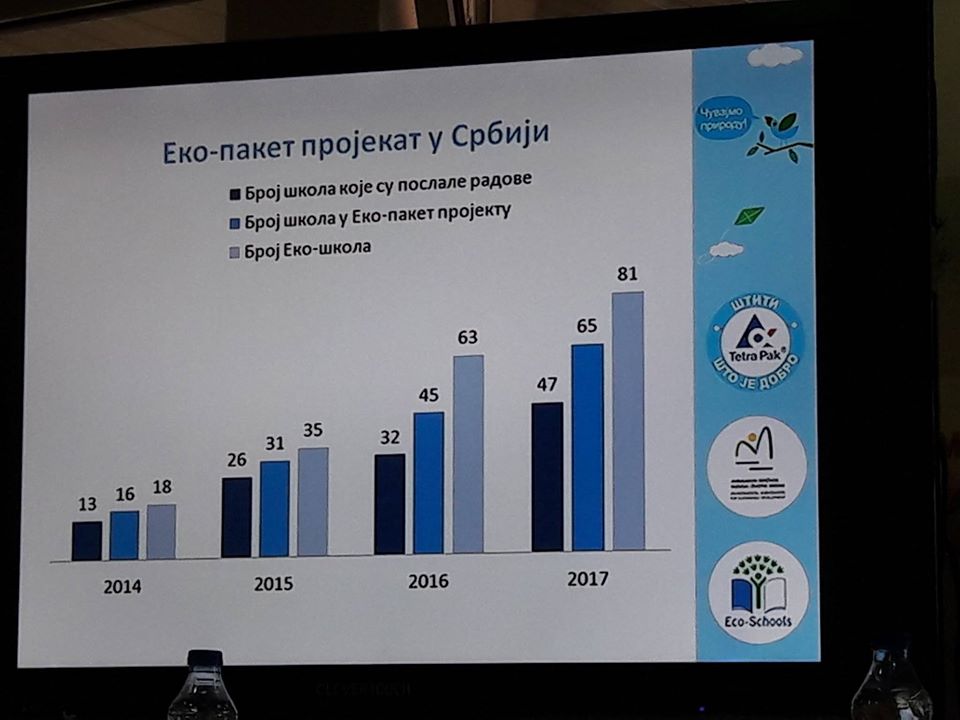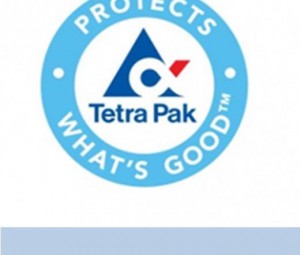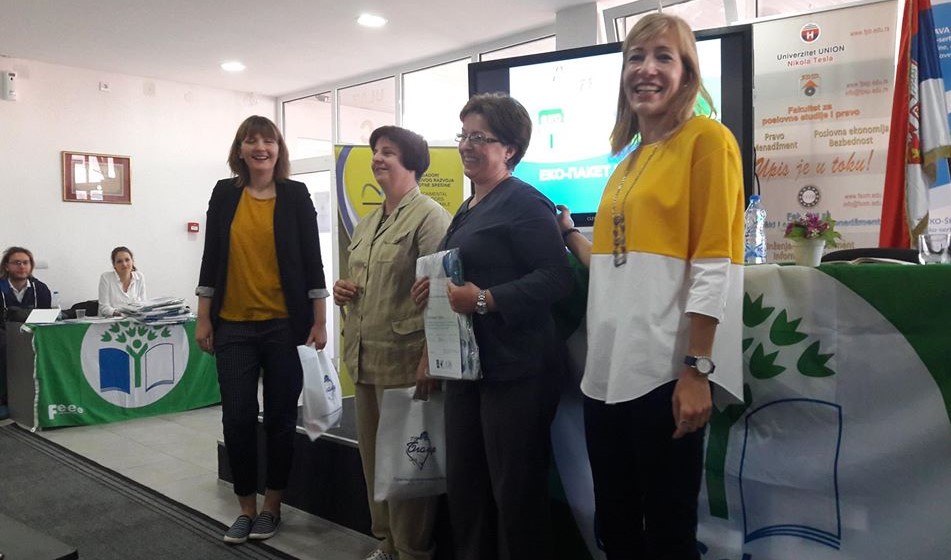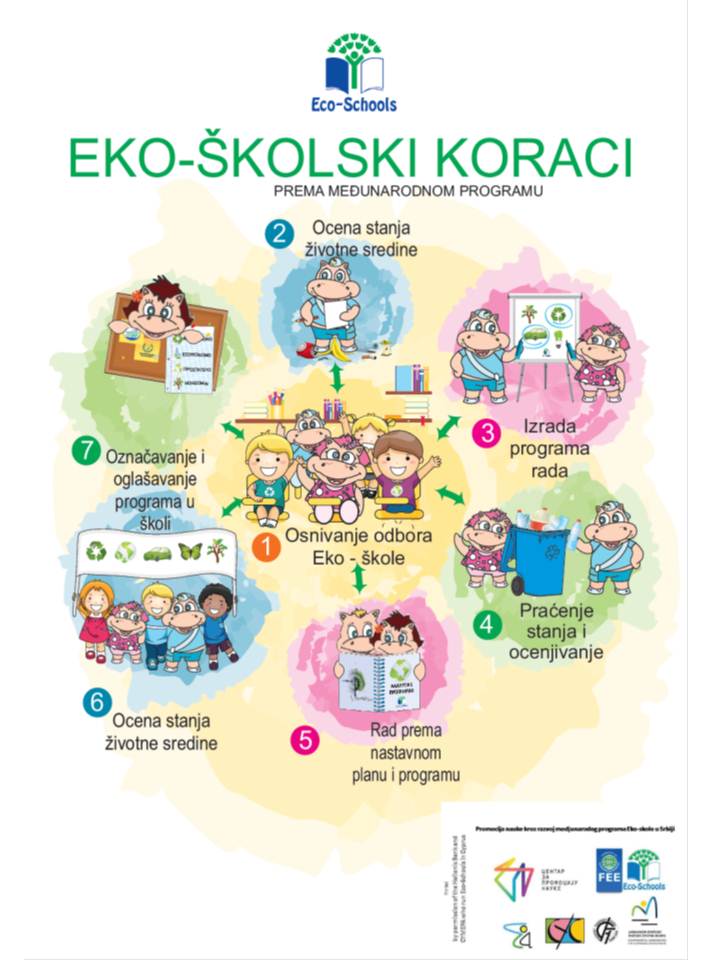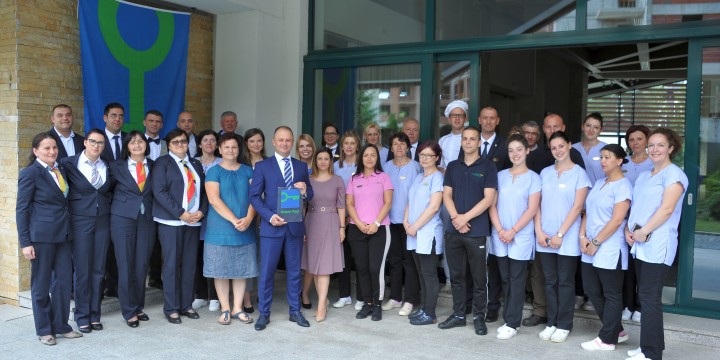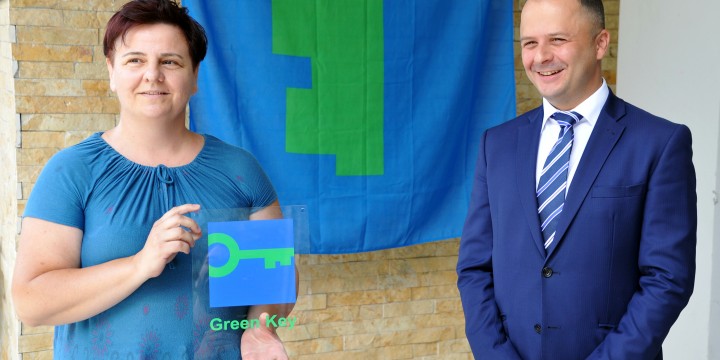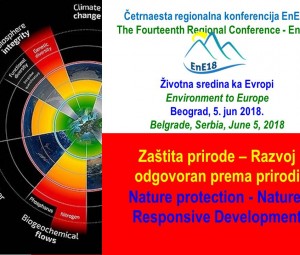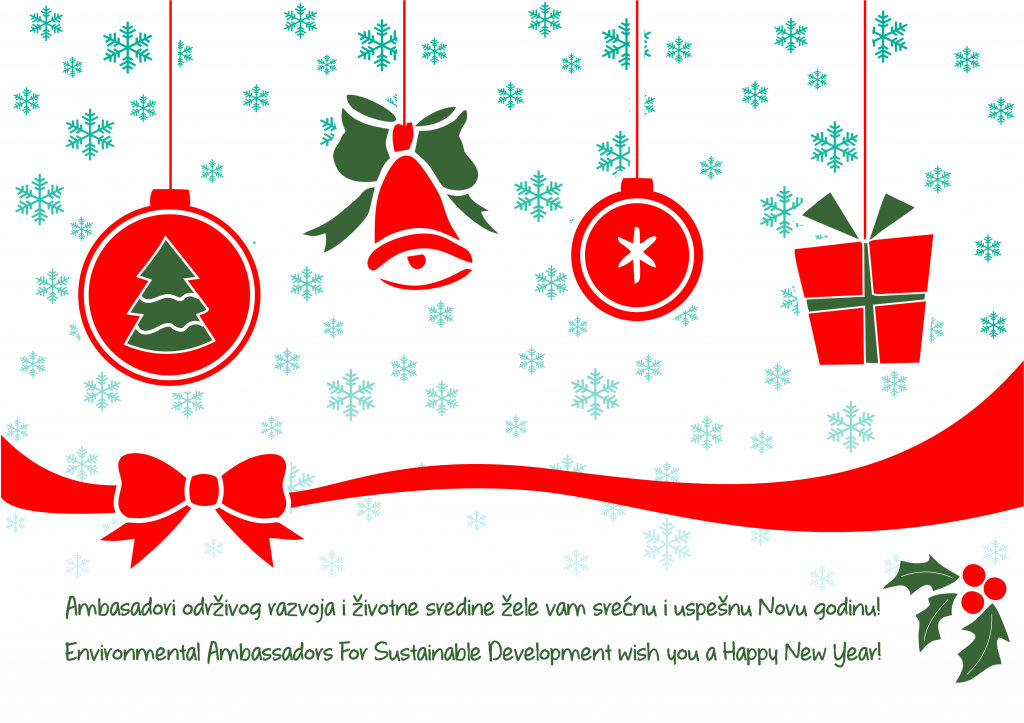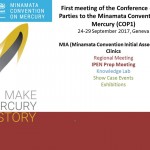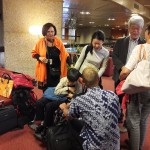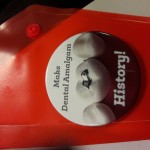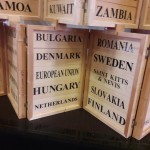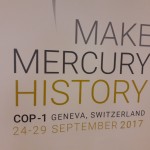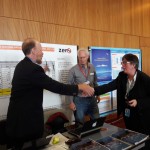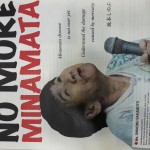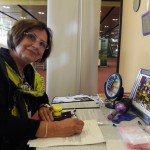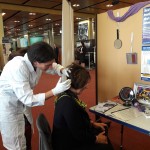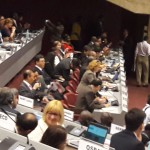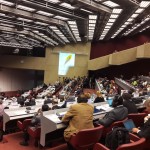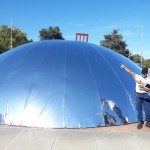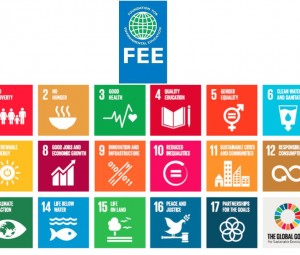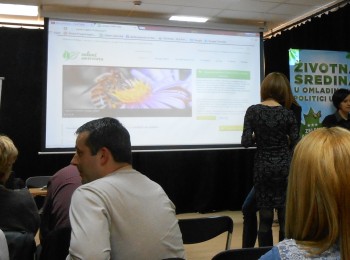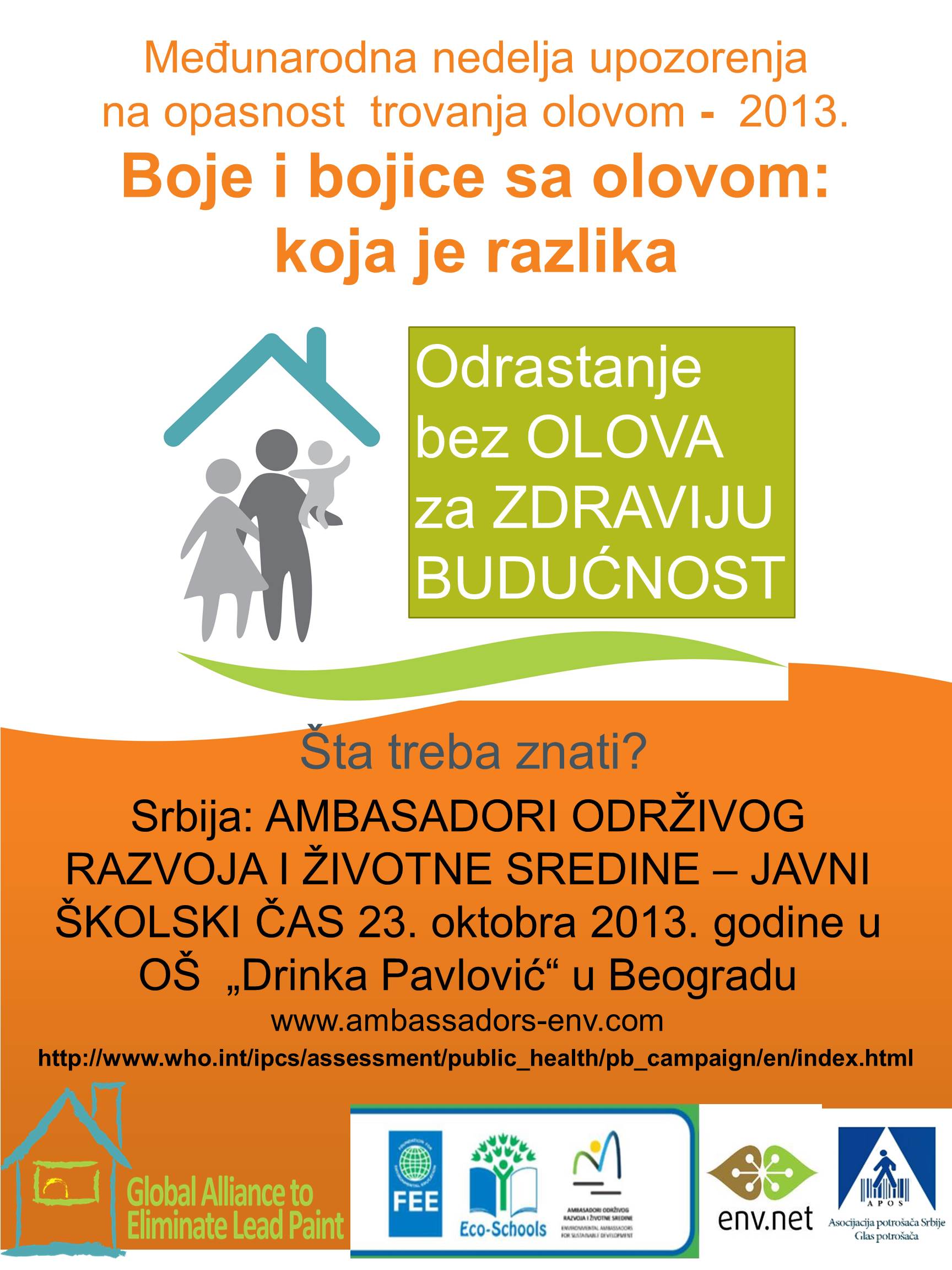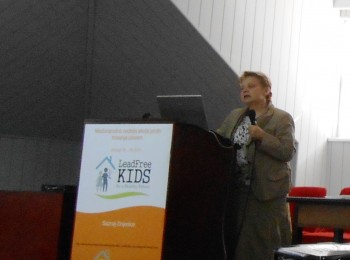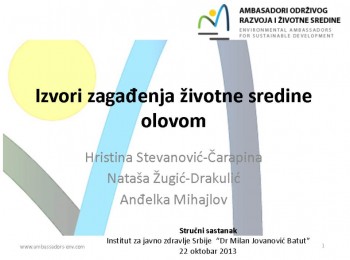ECO-SYSTEM 2024: The “Green Chair” strengthens the voice of young people and women in environmental protection
The Green Chair Network has once again received support from the ECO-SYSTEM program for 2024. This program aims to improve environmental protection in Serbia and helps with the implementation of the negotiating platform for Chapter 27. The Environmental Ambassadors of Sustainable Development is a member organization of the “Green Chair” coordination team and a partner in the project.
The “Green Chair” Network of Organizations brings together 68 civil society organizations dedicated to environmental protection. The network is a key actor in the actions for a sustainable future of Serbia.
In 2023, the members of the network achieved significant results through their work and engagement:
- Education: More than 300 activists have been educated about environmental protection through various workshops and programs.
- Action: Initiatives have been launched to mitigate the effects of climate change in 5 local communities, by raising awareness of the importance of solving this urgent problem.
- Information: The Green Bulletin, the network’s bi-weekly newsletter, has reached a large audience, spreading information on environmental protection throughout Serbia.
In 2024, it is planned to carry out activities to achieve…
- Strengthening the voice of young people: Through research and public debate, the “Green Chair” Network will advocate for greater participation of young people in decision-making on environmental protection. The research will focus on the opinions and needs of young people, and the results will be used to advocate for their interests.
- Improving gender equality: The network will focus on empowering women and their more active involvement in all aspects of environmental protection, as well as fertilizing the work of network members. We want women to be leaders in environmental initiatives and the fight against climate change so that their voices are equally important in decision-making processes.
- Sustainability of the Green Bulletin: By digitizing and expanding distribution, the Green Chair will ensure that the voice of the network reaches even more people. The goal is to make information accessible to everyone and to increase awareness and community engagement.
The ECO-SYSTEM Empowerment Programme is the main component of the project ECO-SYSTEM: Support to Environmental Reforms implemented by the Young Researchers of Serbia with the support of the Swedish International Development Cooperation Agency (SIDA). The project started in January 2020 and will run for four years.
LOCCAR (Local Communities’ Climate Adaptation and Resilience)
According to the Green Agenda for the Western Balkans (2020), the Western Balkans is recognized as one of the regions in Europe most heavily affected by climate change. In addition, climate risks are not sufficiently covered at the local level in the documents and activities implemented. Still, there is no understanding that climate change (heatwaves, droughts, wildfires, coastline erosion, rising sea levels) affects not only the environment but also the local economy and the health of the population, due to a lack of awareness raising among the local population. In its report for Western Balkan countries, European Commission in 2021 stated that they must align with the EU Strategy on Adaptation to Climate Change.
The project Local Communities’ Climate Adaptation and Resilience (LOCCAR) aims to assist local authorities in better understanding, preparing for, and managing climate risks, as well as developing innovative solutions to build resilience. The project will also contribute to establishing sustainable regional cooperation in building climate resilience in the Western Balkans, having in mind that efficient cooperation mechanisms among neighboring countries in the focus of this project (Serbia, Montenegro, and Bosnia and Herzegovina) are missing, even though the transboundary nature of climate-related risks at the local level is reality.
The objective of LOCCAR project is to accelerate climate change adaptation on the local level in Western Balkans through enhancing Civil Society Organisations (CSOs) role in the transformation towards climate resilience, by empowering CSOs visibility in policymaking, raising awareness of local decision-makers on the impacts of climate change on the local communities and supporting sustainable regional cooperation in building climate resilience in the Western Balkans.
A regional round table with the participation of main stakeholders from all three countries will be organized at the end of the project. Based on consultations with selected municipalities, Brochures/Guidelines for the local decision-makers on climate change adaptation in local strategic and policy documents will be prepared and distributed. It is expected that in total 9 selected municipalities in two rounds of meetings with municipalities.will provide their contribution. Using the digital dissemination of the Brochure/Guidelines via websites and digital platforms (Facebook, Instagram, LinkedIn, Twitter) of the 3 CSOs and 9 municipalities, a significant portion of the population in Western Balkans will be reached with the Joint Project’s outputs.
Project partners are Center for Climate Change, Natural Resources and Energy of the University of Donja Gorica (leading partner, Montenegro), a Resource Center for the Environment REC BIH (Bosnia and Herzegovina), and Environmental Ambassadors for Sustainable Development (Serbia).
LOCCAR project is financed by the Western Balkans Fund and co-financed by the EU in the frame of IPA.
Final LOCAL project publication (- Jačanje otpornosti i kapaciteta prilagođavanja lokalnih zajednica na klimatske promjene u Crnoj Gori, Bosni i Hercegovini, Centar za klimatske promjene, prirodne resurse i energiju Univerziteta Donja Gorica, Podgorica, juli 2023 )
Solar energy for citizens in Western Balkans
The project Solar energy for citizens in Western Balkans started in January 2023, supported by Western Balkan Fund and co-financed by EU, with the aim to promote the best practices regarding the possibility to use solar energy by citizens, informing, engaging and mobilizing citizens to be active participants in neutrality transition. During the project implementation, the WB-Solar Net web platform will be established in order to help CSOs in raising awareness on the great potential of solar energy for advancing the regional agenda for a green and sustainable economy, using innovative solutions on clean energy, and following EU Directives.
Nine partners from Albania, Montenegro, North Macedonia, and Serbia will work together to enhance the capacities of CSOs in WB in addressing the poverty energy of marginalized groups, and to advocate for improving the legislation, simplifying and shortening the administrative procedures for delivering permissions to the citizens of WB to install photovoltaic panels. It is also expected that the capacities of CSOs will be improved, in order to strengthen the cross-border dialogue for environmental protection. In addition, through the project, CSOs will gather knowledge and improve their skills in raising the awareness for quick actions for the alignment of WBC policies with the recent European directives and initiatives.
At the end of the project, a network of CSOs and other stakeholders named “Western Balkans Solar Net/Solar4WB” will be established and become functional, to serve as a hub for best practices of self-consumers of solar energy. This will help citizens to be better informed about opportunities and possibilities, and to address the needs of marginalized groups of energy poverty. The network will provide initial recommendations on how to improve legislation, policies, and administrative procedures for potential solar energy users. The activities will be organized to update and consult the National Plans of Energy and Climate of Western Balkan countries.
The online website platform will be developed to become a future hub for CSOs, where will be presented different examples regarding the situation in the field of solar energy. Two webinars will be organized to present the situation of the solar sector, the opportunities, and the barriers. Advocacy efforts will be meetings with representatives of public institutions, TV discussions, articles in the newspapers, posts on social media, etc. The Western Balkans Solar Net, (Solar4WB) as a functional platform with data of members and stakeholders, legislation, procedures, and information on related subjects will be established and presented during the Final Conference at the end of the project.
The second online webinar “ADVOCATING FOR SOLAR ENERGY FOR THE CITIZENS OF THE WESTERN BALKANS “
4th Meeting of the Intersessional Process for Considering SAICM and the Sound Management of Chemicals and Waste Beyond 2020, Bucharest 2022
EASD is participating at the fourth session of the Intersessional Process for Considering the Strategic Approach to International Chemicals Management (SAICM) and the Sound Management of Chemicals and Waste Beyond 2020 (IP4) in Bucharest , August/September 2022. From Serbia, beside Environmental Ambassadors for Sustainable Development (EASD), NGO Safer Chemicals Alternative – ALHem also participated. A summary report of IP4 by ENB which includes also a brief summary of SAICM’s history as well as of the history of the intersessional process.
As the meeting result Co-Chairs’ consolidated text is achieved. achievement, and resume it in early 2023 at a time and venue to be set by the Bureau in consultation with relevant stakeholders.
The UN General Assembly recently adopted a resolution establishing access to a clean, healthy and sustainable environment, a universal human right. At the same time, recent scientific evidence shows that the global threat of plastic and chemical production has exceeded the “planetary boundaries” for chemical pollution. In addition, the global chemical industry is projected to double by 2030, with rapid growth in emerging economies.
The CEE Region recognizes the need for greater cooperation among stakeholders aiming at strengthening the capacities of developing countries and countries with economies in transition for integrated management and promoting the adequate transfer of cleaner and safer technology. Moreover, great deal of attention should be dedicated to raising awareness of chemicals and waste issues among the responsible institutions, agencies, with improvement of the multi-sectorial and multi-stakeholder cooperation.
EASD position (within IPEN umbrella) is to believe that the SAICM is key to advancing the sound management of chemicals and waste considering human health and the environment. Some of important issues pointed out by IPEN include:
– SAICM is the only instrument we have today to address most chemicals and waste but its goals were not met although progress was made. SAICM should strengthen its open, inclusive, participatory and transparent structure which should be multi-sectoral and multi-stakeholder; From our perspective we need an agreement for a strong SAICM-Beyond-2020 Framework that goes beyond the Dubai Declaration and secures ambitious targets for prevention and reduction of harmful chemicals and waste globally bringing about real change.
– The science-to-policy panel should be a tool to raise awareness about the existing scientific knowledge and allow it to take action on emerging issues and issues of concern that were already agreed upon in SAICM; Also, should also have inclusive participation, allow the consideration of different forms of knowledge including from indigenous peoples, and take into account gender-specific dimensions;
– The scope shall include chemicals and all waste throughout their lifecycle.
– That objectives for the industry involvement and other financial commitments are reflected in targets, indicators, and milestones and that monitoring and reporting instruments track progress on financial objectives of the beyond 2020 instrument.
– The framework must also be accompanied by new and additional, adequate, sustainable and predictable funding accessible to all relevant stakeholders to address chemicals and waste issues. The establishment of a funding mechanism following the model of the Quick Start Programme.
The fourth session of the Intersessional Process for Considering the Strategic Approach to International Chemicals Management (SAICM) and the Sound Management of Chemicals and Waste Beyond 2020 (IP4) focused on:
-targets for the post-2020 instrument; -national focal points; -national implementation plans;-how the instrument should deal with issues of concern;-private sector involvement in financing chemicals and waste management; and -the relationship between the instrument and the science-policy panel for chemicals and waste (SPP) mandated -by the fifth session of the UN Environment Assembly (UNEA5).a vision and principles for the instrument;
-identifying targets for the instrument; -how to choose “issues of concern” that would be targeted by the instrument for focused attention and concerted action;-multi-sectoral partnerships;-funding for the secretariat; and -a proposal for a globally coordinated levy on chemical feedstocks to feed a new international fund on chemicals and waste;
– whether, and how, to refer to the new human right to a healthy environment under the instrument’s section on principles; – a possible measurability structure for indicators; – a possible stocktaking mechanism and online tool; -participation in the proposed governing body—the conference—by representatives from the environment, health, labor and agriculture sectors involved in chemical management and safety issues; and – a proposal for a way forward on how to handle existing SAICM issues of concern under the new instrument.
To note that EASD participate and follow SAICM WG on Governance and Mechanisms to support Implementation (from October 2020, lead to IP4 ).
Delegates considered targets in the compilation of draft recommendations for a new instrument as well as new proposals for targets. They agreed to replace the long list of targets with a more limited set of priority targets, grouped under specific strategic objectives. Discussion centered around which targets to keep, which newly proposed targets to include, and which targets might be merged together. See also a table comparing the SAICM Overarching Policy Strategy, SAICM/IP.4/2/Rev.1 “Compilation of recommendations regarding the Strategic Approach and the sound management of chemicals and waste beyond 2020” and the Outcomes of the Virtual Working Groups
On vision, delegates replaced the proposed phrases in the compilation text with three new ones developed by an informal group:
- “Chemical safety for all”;
- “A toxics free planet. Advancing chemicals and waste safety for a healthy future”; and
- “Healthy Planet and People: Making Our Future Chemical and Waste Safe.”
(to note, EASD support Call to action for a tomorrow without toxics )
We must continue working together towards a sound management of chemicals and waste throughout their life cycle, in order to avoid or minimize adverse impacts on human health and the environment!
Call to action for a tomorrow without toxics
Sign the Call to Action here:
https://docs.google.com/forms/d/e/1FAIpQLSecU8_1QRK983bsB1s92c0sHyVBv
adDWW2dW–T_46_JiWjgg/viewform
Urgent call for a strong SAICM-Beyond-2020-Framework ensuring sound chemicals and waste management!
Increasing chemical production, use of harmful chemicals, pollution, and waste are turning into a third planetary crisis[1], beside the climate and biodiversity crises, and at the same time exacerbating them. There is an urgent need for solution-focused actions along the whole lifecycle of chemicals and waste, addressing the threats to human health and the environment – from the enormous use of chemicals, poor chemicals and waste management, to the ever-increasing production and raw material extraction. The undersigned organizations stand together in urgently calling
on governments, industry, and other stakeholders to work towards a tomorrow without toxics. We urge them to actively reduce their chemical footprint and make prevention, reduction, and sound management of chemicals and waste a priority issue.
The current levels of chemicals used in industrial processes, agriculture and daily life products massively expose people and ecosystems to harmful substances.
Ubiquitous, excessive and often uncontrolled use of chemicals, their improper storage and disposal, and accidents, as well as the amount of waste in general and in particular mismanaged waste lead to harmful substances entering the environment, food chains, and human bodies. They poison air, soil and water, harm wildlife and cause biodiversity loss. Exposure to hazardous chemicals produces reproductive and neurological disorders, causes intergenerational effects, and the loss of livelihoods and food systems, among other things. The burdens fall disproportionately on the most financially oppressed, vulnerable and marginalized groups, such as Indigenous
Communities, people in the Global South, workers in industry and agriculture, women and children. This makes chemicals and waste management a cross-cutting issue.
The Strategic Approach to International Chemicals Management (SAICM) and the Dubai Declaration, adopted in 2006 by the First International Conference on Chemicals Management (ICCM1), aimed to achieve sound management of chemicals and waste throughout their life cycle by 2020.[2] Now, at the beginning of the year 2022, we see an even more urgent need for action. SAICM has identified important issues and created a multi-sector platform and multi-stakeholder process for action, involving governments, civil society, businesses and academics. However, the overall objective has not been achieved and progress made is insufficient and mainly limited to information collection, while only a few concrete risk reduction measures have been undertaken. Adverse impacts on human health and the environment from raw material extraction, chemical production, use and disposal continue.
There is no time to waste.
We need an agreement for a strong SAICM-Beyond-2020-Framework that goes beyond the Dubai Declaration on International Chemicals Management[3] and secures ambitious reduction and prevention of harmful chemicals and waste globally, bringing about real change, including the implementation of safe alternatives. Our vision is a world where chemicals and wastes are no longer a source of harm and where all people live in safe and healthy environments, free from toxic threats to ecosystems and to future generations. We call upon all stakeholders to commit to this goal and to increase engagement, expressing a concrete will to end the poisoning of our world. Put a
SAICM-Beyond-2020-Framework urgently into practice as follows:
● Recognize and implement the precautionary and sustainability principles as basic principles and rationale behind all measures. Follow the hierarchy of prevention, elimination and minimization of hazardous substances.
● Include the possibility to stipulate or initiate binding elements for chemicals and waste management throughout the whole lifecycle, including raw material extraction, production, use and disposal of chemicals.
● Set ambitious targets and milestones. Make national action plans binding for all SAICM stakeholders, which particularly promote implementation and monitoring. Include concrete activities to solve the Issues of Concern in SAICM national action plans as well as education and awareness raising measures. Ensure that groups of related chemicals are addressed in the framework and in related action plans
● Establish mechanisms for implementation and progress reporting, and independent monitoring, as well as mechanisms for compliance.
● Realize global implementation on all levels (i.e. local, national, regional and international levels) and ensure this through national action plans. Make a SAICM-Beyond-2020-Framework compatible with other global treaties
including a future legally binding Plastics Treaty[4] or a future international regulation on pesticides[5].
● Secure the multistakeholder and multisectoral character of SAICM. Ensure that the negotiation process is carried out in a way that guarantees equal and fair participation of all stakeholders and right holders, as well as the
possibility to bring in contributions, especially from the civil society.
● Guarantee solid, sustainable, and reliable financing by the internalization of external costs, according to the Polluter Pays Principle. This could be achieved through a coordinated tax on chemical feedstocks, levied by the
national governments where the chemicals are produced[6], ensuring and prioritizing the support for developing and emerging countries. Especially civil society organizations, Indigenous Communities, and science, including citizen science, should be eligible for funding. Further options to implement the Polluter Pays Principle are to be explored and implemented.
● Make sure that a SAICM-Beyond-2020 addresses the identified shortcomings of the predecessor framework and in particular, that solutions for all identified Issues of Concern (IoCs) are developed and new IoCs included when they are needed. Current IoCs must be kept until resolved[7]. This includes e.g. a global phase-out of highly hazardous pesticides (HHPs) and their replacement with agroecology in line with ICCM4 resolution, measures to reduce endocrine disrupting chemicals (EDC) exposure for humans and the environment, and transparency and traceability for chemicals in products.
● Guarantee globally equal safety levels for everyone and everywhere. States must ensure the protection of people and the environment through laws and regulations that hold producers accountable along the entire supply chain
and throughout the whole lifecycle. Eliminate unethical and unacceptable double standards.
● Support the approach of a binding Global Minimum Transparency Standard[8] as a first step for chemicals in products and the establishment of labeling according to UNEP SCP guidelines[9]. This can ensure transparency and
traceability, which are, together with the right to know, key requirements for a safe circular economy globally. It further helps to eliminate double standards and dumping of products in countries with less ambitious chemicals legislation, and to guarantee an equal level of safety for everyone everywhere.
● Ensure sensitivity to the different exposition and vulnerability of people and groups of people to hazardous substances, depending on their area of residence, occupation, social and economic status, age, and gender. Consider
that children are particularly vulnerable to hazardous substances and must be protected from being born pre-polluted.
● Better protect women from hazardous chemicals, by implementing gender responsive policies, mainstreaming gender-equality and collecting gender disaggregated data. Recognize and encourage the leadership role of women in society, politics and science, and also in a SAICM-Beyond-2020-Framework. Consider that women are more susceptible to harmful chemicals than men and have different windows of vulnerability, e.g. during pregnancy.
They are also exposed differently to toxic chemicals due to their gender roles.
● Recognize the principles and values of the universal human rights[10]. Support all right holders, according to the respective international resolutions and declarations[11].
● Recognize the principles of the Rio-Declaration on Environment and Development and the principles of the Agenda 2030, as basic principles.
● Acknowledge the role of chemicals and waste in the biodiversity and climate crises and take action to address these impacts through decreased chemical production, use and disposal, phase out of harmful substances and
implementation of safe and non-chemical alternatives
Urgent call for a strong SAICM-Beyond-2020-Framework ensuring sound chemicals and waste management!
Forest – our lifelong teacher (Erasmus+)
ForLife is a joint project of three partners: Doves, Slovenia (project leader), Jump (Italy) and Environmental Ambassadors for Sustainable Development (Serbia), under the Erasmus+ Program.
EC Project Number: 2021-1-SI01-KA210-SCH-
National Project ID: KA210-SCH-2/21
Project title: Forest – our lifelong teacher
The projects is in line with the new EU Priority “European Green Deal” which is a strong claim and a new strong message of the EU towards all citizens. The project aims to train and empower teachers in the field of global challenges of environmental education (with emphasis on forests and the connection to climate change), through quality lessons and outdoor activities to achieve goals in the field of Education for Sustainable Development (ESD). The professional support of experts who will share their knowledge in the field of forestry will be provided to teachers, in order to enable them the opportunity to exchange experience of good practice that they will transfer to their work. At the end of the project, teachers will be sufficiently qualified, confident, with new skills and knowledge to be able to pass on to students and educate them about the importance of forests in relation to climate change. It is expected that students will, in following period, change their attitude towards forests and show the concern for nature and the future of our planet through their activities (not only in schools, but also widely) and to become active citizens. The role and importance of forests and their main functions (social, production and especially ecological) will be emphasized during the project, as well as the inclusion of forest visits in regular school work will be proposed, in order to improve knowledge regarding forest as a natural environment in Europe, to emphasize the importance of forest protection, but also afforestation and sustainable forest management. Teachers that teach students with special needs, marginalized and sensitive groups (Roma and immigrants who often have difficulty learning due to their knowledge of terminology, women and girls) will be included in the project, having in mind they do not have as many opportunities to participate in international projects. Through practical activities, games and outdoor activities, the mentioned groups can actively participate, learn and gain new knowledge about forests. The sustainable forest management requires the adoption of practices that take in account scenarios of future climate. Information/educational instruments are foreseen as the important tool of the resilience of the forest to climate change (educational institutions have important role, including Eco-Schools and others).
The implementation of these measures needs to be supported by a training and awareness raising that builds both general knowledge on climate change and forest management. The project is primarily aimed at teachers who teach students aged 5 -15. Teachers who educate children with special needs or work with marginal groups (Roma and immigrants), with the project activities they will help these children to easily integrate into society and encourage them to contribute to the overall progress.
The project goal is to achieve state in which teachers will feel equipped and competent to transfer knowledge in the first place to the secondary group indirectly involved in the project: colleagues, school managements and further students, which will gain new knowledge in the field of forests. The teachers involved will continue to share their knowledge and experience at professional meetings for teachers, study groups, thematic conferences, the network of Eco-schools in Slovenia and Serbia also have its own monthly newspaper, through which they inform the teachers involved in the programme.
Project ForLife started in February 2022, and lasts until July 2023. It is supported by EU, throught the Erasmus+ programm.
Kick-off meeting was held on February 24-25, 2022 in Portorož, Slovenia, with participation of all three partner organizations. It was very good opportunity to discuss upcoming activities in each country, as well as activities that will be organized jointly, as trainings for teachers involved in the project. During the meeting there was also opportunity to visit Skocijan cave, to see how on of the forest track in the vicinity of Skocijan looks, to learn about educational activities that National forestry institute from Slovenia organize with school children, and to see how Eco-schools program is running in pre-school in Slovenia.
Final online Conference on the project: Forest – our lifelong teacher May 29-31, 2023
Schools go green and digital – and Erasmus+ supports teaching excellence!
IPEN global plastics monitoring project
The aim of the IPEN global plastics monitoring project is to raise awareness locally and globally about hazardous chemicals in recycled plastics used for consumer products. The project targeted recycled plastic pellets of high-density polyethylene (HDPE) sold from small-scale, local operations, since this is one of the most commonly used material for consumer products. These have been analyzed for UV stabilizers, Decabromodiphenyl ether (deca BDE) and PCBs.
Environmental Ambassadors for Sustainable Development participated in the project as IPEN participated organization. The recycling facility EASD used as project site is situated in north-west Serbia, and there are app. 75 employees. The facility was founded 15-16 years ago. 75% of products are for the export, to the Central European Countries (Poland, Czech Republic…). Other 25% is sold to the domestic plastic producers (placed around Serbia), which use these recycled plastic pellets to produce plastic products, but not for food storage.
There are several steps performed to produce recycled plastic pellet, from yield small pieces of plastic (flakes or fragments) to the pellet that is using in next steps of production cycle.
All secondary raw material is used in the recycling process (“zero waste” at the end of the process). They use plastic breakage and waste from its production to make plastic buckets for the construction sector, black colored.
The input plastic is coming from unformal secondary raw collectors, but the large number are also imported.
The samples of plastic pellets were used from the facility and sent to IPEN to be analyzed. The samples were analyzed at the University of Chemistry and Technology Prague in the Czech Republic. More at …..
The results are shown in the study: Widespread chemical contamination of recycled plastic pellets globally.
Presentations:
Widespread chemical contamination of recycled plastic pellets globally
Global plastic pellet samplings – Results and briefing
Press Release:
Further promotion of results:
April 28, 2022 – Participating at Local Round Table in Perlez, municipality Zrenjanin, presenting issues of toxic additives in plastics pellets and IPEN study, as well as capturing synergies between plastic pollution (and with decarbonization and climate change. About 10 people from this small town participated.
Activities of awareness raising in Serbia are posted on site in Serbian language.
Satellite-like activity in Serbia (and region): Serious of “Seminars for Climate and Environment Ambassadors”
Prof dr Andjelka Mihajlov as European Climate Pact Ambassador launched satellite-like activity as serious of “Seminars for Climate and Environment Ambassadors”. Launched event was National Eco-Schools coordinators meeting, held in Vladimirovci, Serbia on October 8, 2021. With introductory speech, she informed about upcoming serious of climate education and awareness raising “Seminars for Climate and Environment Ambassadors”, structured by European Pact Ambassador on Climate Pact priority topics, and to be realized by professional association “Environmental Ambassadors for Sustainable Development” through national network of Eco-Schools (with more than 100 educational institutions from pre-school to university level).
The first one will be webinar on November 25, 2011 with green knowledge and skills as thematic focus, with agenda focus on “vocabulary” and terms understanding related EU Climate Pact and Green Deal/Fit for 55, to be presented by Prof dr Andjelka Mihajlov. Case activities and lectures on theme will be presented by other professors, having as the base Climate Box .
Registration is mandatory: https://forms.gle/LoBoNrQSxSEQLcXv5
Time: Nov 25, 2021 09:30 AM Budapest
Join Zoom Meeting
https://us06web.zoom.us/j/
Meeting ID: 856 2230 5302
Passcode: 023813
The second webinar will be in February 2022 with thematic focus on green areas and buildings. This seminar will be partially supported by Ministry of Environmental Protection of Republics of Serbia, and project Water and Sanitation Safety Planning in the Balkan Region. The third webinar/seminar will be in May/June 2022 with thematic focus on green transport.
These satellite-like events clearly go along the objectives and values of the Climate Pact, involving a number of citizens to take climate action and building a greener country, region and Europe. Real assumption is that each of seminars will attract at least 50 teachers and professors (150+ for 3 seminars), reaching further at least about 4000 students and pupils, further influencing their families and community members on climate friendly way of living. Seminars will not be limited to Eco-schools; it will be open also to public in all countries in region for participants able to follow presentations in Serbian language.
Energy Efficiency in Eco-schools
Through the Eco-schools Serbia network, series of workshops regarding raising awareness on energy efficiency, especially related measures that can be implemented in Eco-schools, at homes and wider in local communities, are organized. Participants are pre-school children and students from primary and secondary schools which are members of Eco-school network in Serbia. Educational material was prepared, printed (with original illustrations and design) and shared during the workshops. The material served for building capacity of teachers and professors to deal with energy efficiency issue. Workshops are organized in cooperation with the staff from the Public enterprise “Elektroprivreda Srbije”, using and sharing their knowledge regarding energy efficiency.
Every can counts in Eco-schools
Through the Eco-schools Serbia network, series of workshops regarding raising awareness on recycling process (collection, separation, recycling), with focus on cans, are organized. Participants are pre-school children and students from primary and secondary schools which are members of Eco-school network in Serbia. Educational material was prepared, printed (with original illustrations and design) and shared during the workshops. The material served for building capacity of students, teachers and professors to deal with waste collection and recycling issues. Competition in collection of used can is organized through Eco-schools Serbia network, using pre-defined system for awarding the most successful Eco-schools.
Project activities supported by RECAN foundation.
Education and raising awareness regarding need to protect the environment
With the support of the City of Sombor, the Environmental Ambassadors of Sustainable Development Environment realized workshops in primary schools in suburban settlements. These activities were a continuation of the cooperation that began in 2013, when the first workshops were organized during the summer camp on Golija Mt., for high school students.
Based on previous experience and taking into account the interest of students and teachers, as well as their engagement during the workshops on sustainable development and environmental protection, preparation and implementation of workshops covered several topics, such as water, biodiversity, waste, adapted to primary school students.
Mapping recyclers and purchasers of secondary raw materials through an international Eco-schools program
Project contributed to the development of skills and raising the awareness of the need for separation and the importance of recycling among educational institutions and local communities involved in the international Eco-school program.
Through Eco-schools Serbia network information were collected and the results are processed, regarding the types and quantities of waste collected. This served to develop map of locations where recyclers and purchasers of secondary raw materials are registered, which can become partners of Eco-schools in their activities related to waste collection and separation.
Supported by Government of the Republic of Serbia, Ministry of Agriculture and Environmental Protection.
Country factsheets on resource efficiency and circular economy in Europe: EASD activities mentioned
In July 2019, EEA issued TC/WMGE Reports 4/2019: Country factsheets on resource efficiency and circular economy in Europe – a set of 32 country factsheets that summarise policies and initiatives on the area of resource efficiency and circular economy.
, Environmental Ambassadors for Sustainable Development (EASD) are mentioned two times, within sub-chapters Non-formal Education and Awareness Raising and Networking and Conferences, pages 17 and 18. By this, EASD work in those areas acknowledged.
Eco-Paket (Eco-Package) in Eco-Schools
Eco-package is a project implemented in Serbia since 2013/2014 school year, exclusively run in the framework of the International Eco-schools Programme.
Until 2019 the number of Eco-Schools participating in the project increased continuously. This project supported Eco-schools network in their activities performed to be linked to the education for sustainable development through realization of UN Sustainable Development Goals, primarily Goal 4 (Quality education), Goal11 (Sustainable cities and communities) and Goal 17 (Partnerships for the Goals).
The project consisted of three activities:
• creative art work competition: based on different theme, every year the students are collecting used beverage cartons (UBC)
• collection of used beverage cartons (UBC) and
• educational workshops for school children including the demonstration how UBC can be turned into paper (these workshops are being conducted by EASD since 2015/2016 school year).
The main goal was to raise awareness among pre-school children, school children and students of Eco-schools, their families and wider community about the need for sustainable use of resources on the example of correct methods of separation, disposal and recycling of used beverage cartons
Specific goals were:
– Educate pre-school children, school children and students about correct methods of separation and disposal of used beverage cartons.
– Encourage wider community to participate in the process of collection and recycling of used beverage cartons in order to raise their environmental awareness.
– Introduce sustainable forest management principle through FSC model, including sustainable production and consumption of used cartons.
– Present and promote companies and businesses that have incorporated the principles of sustainable development and social responsibility towards the environment and natural resources into their operation.
Main target groups were children in kinder gardens (pre-school institutions), pupils in primary and secondary schools and university students, as well as teaching and non-teaching school staff
Other target groups were parents/families/neighbours, local communities (including local companies, institutions, organizations) and media.
Outreach include Eco-schools Serbia network management, workshops organization, preparation of educational material, knowledge based advocacy, raising awareness among educational institutions and local communities on circular economy issue, establishing good cooperation with local communities where Eco-schools exist
From 2019/20 project is not active at national level
________________________________________________________________________________
More about Eco-Schools Program in Serbia.
Also, detailed instructions are posted in Serbian, as well as most news and announcements.
In addition, there is separated dedicated web sites (in Serbian) for this Eko-paket (Eco-Package) project, supported by Tetra Pak in Serbia.
________________________________________________
October 2018: Circular economy knowledge based advocacy in Eco-schools network in Serbia
October 2017: Eko-paket – Eco-Schools annual conference for the school year 2017/2018
May 2017: Eko-paket 2017 outcome
September 2016: Education for Sustainability
September 2016: FEE General Assembly 2016 and International Conference on Education for Sustainable Development, Ahmedabad, India
June 2016: WED Messages from Serbia: 12th Regional Conference “Environment to Europe”
May 2016: EASD Knowledge Partner with CEE for ESD for transforming education for children and youth
November 2015: Eco-Schools 2015 NOM in Northern Ireland
October 2015 – SDGs as the relevant part of the context within which FEE operates
January 2015 – Eco-schools Serbia in the International Eco-schools news
December 2014, status: ECO-SCHOOLS FAMILY IN SERBIA IS GROWING, CATALYZED BY ECO-PACKAGE ACTIVITY, On December 12, 2014 in Belgrade, two different activities, merged in one great and successful event, happened: Green Flags Award ceremony and Annual meeting of Eco-Schools Coordinators. Over 50 participants were present from all levels of education institutions. The main topics discussed include different ideas and methods on how environmental education in schools could be enhanced and better represented in school curriculum. Positive experiences are shared, in particular related motivation through ECO-PACKAGE activity, supported in Serbia by Tetra-Pak Production Company (Tetra Pak Production d.o.o Beograd in 2013/14 and 2013/14 supports Eco-Schools Program in Serbia, as a socially responsible company). From 3 Eco-schools in 2012/13, 15 in 2013/14, in Serbia there are in the moment 24 schools in different stages of Eco-School Program implementation 2014/15 (2 higher education institutions level, 1 secondary school level, 18 elementary schools and 3 pre-schools). Behind this growing success is NO Team in Serbia (from organization Environmental Ambassadors for Sustainable Development): National FEE Mentor for FEE Programs Prof.dr. Andjelka Mihajlov, National Eco-School Coordinator (until October 2014 Milica Petrovic, from October to December 2014 Dragana Grujicic, and in 2015 expecting new dedicated person on the board), National FEE Council (with representatives of supporting ministries, other relevant institutions and experts), Prof. dr. Natasa Zugic-Drakulic – Executive Director, assistance of Milena Tabasevic and Marina Marjanovic, as well as Coordinators and dedicated teachers, professors and principals in Eco-Schools (participants of 2014 Seminar): Andrijanić Zoran, Angeleski Alma, Babović Dragana , Božilović Dragica, Bursać Slađana,Davidović Stevan,Despotović Slavica, Đurović Ljiljana, Gligorovski Tatjana, Grahovac Prole Milijana, Ivanović Vesna, Janković Danijela, Jeličić Biljana, Joksimović Ana, Jovanović Dragana, Kocić Vesna, Luković Verica, Luković Brankica, Maksić Marina, Mandić Miroslav, Miloradović Dragana, Milosavljević Zorica, Momčilović Verica, Nikitović Dragana, Nikolić Perčević Đulica, Pantović Zoran, Perić Snežana, Sekulić Dragojle, Simendić Siniša, Stoiljković Slavica, Strugar Aleksandra, Vasiljević Milka, Večei Funda Valerija, Vidojević Mirjana, Vranić Darko, Grujičić Marina, Malinić Uglik Sanja, Planić Vasilie, Marković Jasmina, Radić Marija, Stanojlović Dragana and Ceranić Đuro. Moments from the Event are available at: http://ambassadors-env.com/gallery/eko-skole-12-12-2014/ and http://ambassadors-env.com/gallery/eko-skole12-12-2014-deo-2/
December 2014 – Eco-schools National Operators Meeting 2014 ; National Meeting of Eco-Schools Coordinators
May 2014 – With children, parents and teachers “cleaning up Serbia”
January 2014. : There are 18 schools in the Program, 3 of them already awarded with Green Flag
Meeting with Eco-Schools Coordinators, December 2013
Tetra Pak Production d.o.o Beograd in 2013/14 start to support Eco-Schools Program in Serbia. Tetra Pak, as a social responsible company takes part in this Program in order to raise awareness of children and local communities on the importance of responsible behaviour towards environment.
The first GREEN FLAG ceremonies : September 19 and 12, 2013 , November 19 2013
National FEE Committee Meeting, September 6, 2013 : 3 schools awarded
_________________________________________________
3 schools applied and started process in 2012-13 .
June 2013: International Mentor visited school “Drinka Pavlović” in Belgrade.
_________________________________________________
Program activities include summer schools, summer camps, etc.
Related activities: Education for Sustainable Development
Zlatibor Mona hotel – the only hotel in Serbia outside of Belgrade with international ecocertification “Green Key”
The Zlatibor Mona hotel has always been renowned as a business dedicated to upholding the tenets of social responsibility. This has recently been officially recognized with our having satisfied the requirements for the Green Key, the reception of which marks a new epoch in the social awareness of our business operation. Through numerous activities, we continue to contribute to environment protection, raising ecological awareness of staff and guests alike, as well as local community development. We strive to continue to advance in the sphere of sustainable business and to implement all the measures possible toward the realization of the Green Key aims. We proudly point out that we are the first Serbian hotel brand, as well as the only hotel in Serbia outside of Belgrade to receive this prestigious certificate.
“It is with great pleasure that I can say we received the “Green Key” certificate thanks to the dedication of our entire team and that all our employees have recognized the importance of the initiative and came on board of this global environmental movement. With regard to the fulfillment of the certificate requirements, many were completed already in 2007, with the renovation of the hotel, and our operation now accommodates all the criteria, including water consumption control, electrical energy expenditure, and the exclusive use of environmentally friendly chemical products.”
Ivan Vitorović, Chief Executive Officer of Mona Hotel Management
Save the date: June 4, 2019 – EnE19 Conference/Round table AIR QUALITY IN SERBIA, YESTERDAY, TODAY, AND TOMORROW – CLEAN AIR – HEALTHY FUTURE
EnE19: Round table “AIR QUALITY IN SERBIA, YESTERDAY, TODAY, AND TOMORROW – CLEAN AIR – HEALTHY FUTURE “, will be held on June 4, 2019 in Belgrade in the premises of the Serbian Chamber of Commerce, Belgrade, Resavska 13-15, from 10h to 14h.
On the World Environment Day in the European sustainable development week, traditionally, this event is organized by “Environmental Ambassadors for Sustainable Development” and Serbian Chamber of Commerce – “Environment towards Europe – EnE19”.
This year, the focus will be on “AIR QUALITY IN SERBIA, YESTERDAY, TODAY, AND TOMORROW – CLEAN AIR – HEALTHY FUTURE “. Round table will be held on June 4, 2019 in Belgrade in the premises of the Serbian Chamber of Commerce, Belgrade, Resavska 13-15, from 10h to 14h. Conference is UNEP WED event, supporting EU Integration process through project ’’Development of the ENV.net in West Balkans and Turkey: giving citizens a voice to influence the environmental process reforms for closer EU integration’’.
Round table date is – June 4, 2019, (in Chamber of Commerce and Industry of Serbia 13-15 Resavska Street 11000 Belgrade, at 10 a.m. to 14 p.m.). The openings are usually held at 10 a.m. (on June 4), Opening session is usually from 10:00 to 11:00/11:30.
The conferences “Regional Conference Environment to Europe” we held earlier had a great success and they gained credibility at the national and international level.
China will host the global World Environment Day celebrations on 5 June 2019 with a theme of air pollution.
World Environment Day is a UN Environment-led global event, which takes place on June 5 every year and is celebrated by thousands of communities worldwide.
Since it began in 1972, it has grown to become the single largest celebration of our environment each year.
Air Pollution facts:
- 92 per cent of people worldwide do not breathe clean air
- Air pollution costs the global economy $5 trillion every year in welfare costs
- Ground-level ozone pollution is expected to reduce staple crop yields by 26 per cent by 2030
Ambient air pollution accounts for an estimated 4.2 million deaths per year due to stroke, heart disease, lung cancer and chronic respiratory diseases. Around 91% of the world’s population lives in places where air quality levels exceed WHO limits. While ambient air pollution affects developed and developing countries alike, low- and middle-income countries experience the highest burden. Policies and investments supporting cleaner transport, energy-efficient housing, power generation, industry and better municipal waste management can effectively reduce key sources of ambient air pollution.
Round Table “Environment to Europe” – EnE19 is an official UN event marking the European Sustainable Development Week (ESDW) in the Republic of Serbia. The ESDW initiative is spread across European countries that stimulates and makes visible activities, projects and events that promote Sustainable Development Goals (SDGs). It is held every year from May 30 to June 5, with the aim of raising awareness of Agenda 2030 in Europe and the importance of local stakeholders in achieving 17 goals of a sustainable development and sustainability in general.
Join us for June 5th: Conference Agenda is available
Pictures from the event:
Otvaranje / Opening
Panel o zastiti prirode / Panel on Nature Protection
UNEP nagrade / UNEP@WED
YRE awwards/ Nagrade Mladih ekoreportera & https://www.facebook.com/mladiekoreporteri/
Prezentacija radova / Presentations
The Fourteenth Regional Conference – EnE18
Environment to Europe
Belgrade, Serbia, June 5, 2018
Nature protection – Nature-Responsive Development
Conference Agenda, draft, as on 22/05/2018
Conference “Environment to Europe” – EnE18 is an official event that marks the UN World Environment Day (WED) in the Republic of Serbia and region. Since its beginning in 1974, World Environment Day has developed into a global platform for raising awareness and taking action on urgent issues from marine pollution and global warming to sustainable consumption and wildlife crime. “Beat Plastic Pollution”, the theme for World Environment Day 2018, is a call to action for all of us to come together to combat one of the great environmental challenges of our time. Chosen by this year’s host, India, the theme of World Environment Day 2018 (If you can’t reuse it, refuse it) invites us all to consider how we can make changes in our everyday lives to reduce the heavy burden of plastic pollution on our natural places, our wildlife – and our own health. In recent years, millions of people have taken part in thousands of registered activities worldwide.
Conference “Environment to Europe” – EnE18 is an official event that marks the European Sustainable Development Week (ESDW) in the Republic of Serbia. The ESDW is a European-wide initiative to stimulate and make visible activities, projects and events that promote sustainable development and the Sustainable Development Goals (SDGs). It takes place every year from 30 May until 5 June. The ESDW aims to raise awareness for the 2030 Agenda in Europe and calls upon local stakeholders to actively engage with sustainable development, in general, and the SDGs, in particular.
The Fourteenth Regional Conference EnE18 is thematically focused on Nature protection – Nature-Responsive Development (2018). Since 2005, when we established the Conference, we have around 2.500 participants from 15 countries and presented about 350 research and scientific papers. This year is also fourteen years of partnership between “Environmental Ambassadors for Sustainable Development“ with the Chamber of Commerce and Industry of Serbia“.
Conference Agenda
as on 22/05/2018; possible changes of Agenda when confirmation received
5. jun June 5th
| Velika sala u PKS, II sprat, Terazije 23, Beograd | Main Hall, 2nd floor – Serbian Chamber of Commerce, Terazije 23, Belgrade |
9:00 – 10:00 Registracija učesnika / Registration
10:00 – 10:50 Uvodna obraćanja / Opening remarks
Moderator: dr Uroš Rakić, on behalf of organisators
- H.E. Ratko Vlajkov, Ambassador, Embassy of the Republic of Bulgaria in the Republic of Serbia – The Bulgarian presidency of the Council of the EU / Ambasador, Ambasada Republike Bugarske u Republici Srbiji
- H.E. Lazar Mirkić, Ambassador, Embassy of Bosnia and Herzegovina in the Republic of Serbia / Ambasador, Ambasada Bosne i Hercegovine u Republici Srbiji
- Robert Nygård, The First Secretary Responsible for Environmental Issues, Swedish Embassy in the Republic of Serbia / Prvi sekretar odgovoran za pitanja životne sredine, Ambasada Švedske u Republici Srbiji
- Delegation of EU in Serbia, representative / Delegacija EU u Srbiji, predstavnik/ (potvrđeno/confirmed, representative tbd)
- Minister for Environment / Ministar za zaštitu životne sredine (invited/pozvan)
- Stanojla Mandić, Deputy Commissioner for Information of Public Importance and Personal Data Protection of the Republic of Serbia / Zamenica poverenika za informacije od javnog značaja i zaštitu podataka o ličnosti Republike Srbije
- Dr Deni Porej, Director of WWF Adria, WWF Mediterranean Programme Office / Direktor WWF Adria, WWF Regionalna kancelarija
- Aleksandra Šiljić Tomić, Project Coordination Specialist, UN Environment Republic of Serbia / Koordinator projekta, Kancelarija UN za životnu sredinu, Republika Srbija
- dr Nenad Sekulić, Head of Department for Biodiversity and Ecological Network, Institute for Nature Conservation of Serbia / Načelnik odeljenja za biodiverzitet i ekološke mreže, Zavod za zaštitu prirode Srbije
- Goran Krnčević, Assistant Director of the Sector for Legal, Financial and Administrative Affairs, Institute for Nature Conservation of Vojvodina Province / Pomoćnik direktora za pravne, finansijske i opšte poslove, Pokrajinski zavod za zaštitu prirode
- Ljubica Naumović, Environment Executive, Tetra Pak Production / referent za zaštitu životne sredine, Tetra Pak Production
- Dušan Stokić, Co-organizer of the EnE18 Conference, Head of the Department for Environment, Technical Regulation, Quality and Social Responsibility, the Chamber of Commerce and Industry of Serbia / suorganizator EnE18 Konferencije, Rukovodilac Službe za životnu sredinu, tehničke propise, kvalitet i društvenu odgovornost, Privredna komora Srbije
- prof. dr Dunja Prokić, the EnE18 Conference Chair person, Environmental Ambassadors for Sustainable Development / predsedavajuća EnE18 Konferencije, Ambasadorka održivog razvoja i životne sredine
10:50 – 11:00 Aleksandra Mladenović, Environmental Ambassadors for Sustainable Development President/ Predsednica Ambasadora održivog razvoja i životne sredine, Plenary, Panel Theme and Panelists / Predstavljanje plenarnog izlaganja, panela i panelista
11:00 – 11:20 Plenary lecture / Plenarno predavanje
Begona Matilla Soloaga, Human Dynamics, Team leader, TA for strengthening the National Nature Protection System for implementation of Natura 2000 requirements / Human Dynamics, tim lider, NATURA 2000 Turska. Focus : NATURA 2000 in Turkey – project outputs / NATURA 2000 u Turskoj – rezultati projekta.
11:20 – 13:30 Panel on Nature Protection and Nature – Responsive Development / Panel na temu Zaštita prirode i razvoj odgovoran prema prirodi
Moderator: Milica Momčilović, journalist, Vice President of World Federation of Science Journalists (WFSJ) / novinar, potpredsednica Svetske federacije naučnih novinara
Panelists (Plenary Session) / Učesnici Panela (Plenarna sesija) :
dr Deni Porej, Director of WWF Adria, WWF Mediterranean Programme Office / Direktor WWF Adria, WWF Regionalna kancelarija. Focus : WWF and Nature Protection, Nature – Responsive Development / WWF i zaštita prirode, razvoj odgovoran prema prirodi.
prof. dr Predrag Simonović, Faculty of Biology, University of Belgrade / Biološki fakultet, Univerzitet u Beogradu . Focus: An invasive species of fish and links between fisheries management and aquaculture in Serbia in the process of EU accession / Invazivne vrste riba i veza između ribolovnog upravljanja i akvakulture u Srbiji u procesu pristupanja EU
mr. Danko Jović, Institute for Nature Conservation of Serbia / Zavoda za zaštitu prirode Srbije. Focus: State in the Republic of Serbia in respect of nature and oblidations of Serbia in the process of accession to the EU in this area / Stanje u Republici Srbiji u vezi zaštite prirode i obavezama Srbije u procesu pristupanja EU u ovoj oblasti.
Klara Sabadoš, Institute for Nature Conservation of Vojvodina Province / Pokrajinski zavod za zaštitu prirode. Focus: The situation regarding nature protection and the NATURA 2000 network in Serbia / Situacija oko zaštite prirode i mreže NATURA 2000 u Srbiji.
Nikola Stanojević, Bird Protection and Study Society of Serbia / Društvo za zaštitu i proučavanje ptica: Protection of birds and obligations of the Republic of Serbia in the process of EU accession in this area / Zaštita ptica i obaveze Republike Srbije u procesu pristupanja EU u ovoj oblasti.
13:30 – 13:40 Technical Break / Tehnička pauza
13:40 -14:00 Awards for the winners of the competition „Beat plastic pollution! If you can’t reuse it, refuse it!“ organized among elementary school classes by UN Environment and partners: Environmental Ambassadors for Sustainable Development and Forestry and Environmental Action for celebration of the World Environment Day 2018 in Serbia / Dodela nagrada timovima iz osnovnih škola u Srbiji, pobednicima na konkursu „U koštac sa plastikom!“ tj. „Pobedi zagađenje plastikom! Ako ne možeš da je ponovo upotrebiš, ne koristi je!“ koji je Agencija Ujedinjenih nacija za životnu sredinu organizovala zajedno sa partnerima: Ambasadori održivog razvoja i zaštite životne sredine i Inicijativa za šumarstvo i životnu sredinu – fea povodom obeležavanja Svetskog dana zaštite životne sredine 2018. u Srbiji.
Obraćanje: Aleksandra Šiljić Tomić, specijalista za koordinaciju projekata Agencije Ujedinjenih nacija za životnu sredinu (UN Environment)
Awarded / Nagrađeni radovi:
1. mesto – rad „Žutoplovac“, OŠ „Sveti Georgije“, Uzdin; Nagradu prima mentor Tatjana Romanov, profesor razredne nastave
2. mesto – rad „Eko brodić – Drugarstvo“, OŠ „Rade Dodić“, Milutovac, izdvojeno odeljenje Poljna; Nagradu prima mentor Suzana Jovanović –Stanisavljević
3. mesto – rad „Brod prijateljstva“, OŠ „Petefi brigada“, Kula; Nagradu prima mentor Marijana Kolarić
Photo exhibition – slideshow of vessels (ships, sailboats, etc.) of all elementary school classes participated in the competition is presented in the front of the Main Hall.
14:00 – 14:20 Awards for the best Young Reporters for the Environment (YRE) in 2018: “Energy Efficiency of the Eyes of Young Reporters for the Environment” / Dodela nagrada najboljim Mladim Eko-reporetima u 2018. godini: “Energetska efikasnost očima Mladih Eko-reportera”
Obraćanje: Dijana Šarac, koordinator Programa Mladi Eko-reporteri
Awarded/ Nagrađeni radovi:
Uzrasna kategorija od 11 do 14 godina
– U kategoriji članaka:
- mesto David Bradić iz OŠ „Rade Dodić“, Milutovac, naziv članka: Sunce i ti
- mesto Lena Veličić, Dunja Milijanović iz OŠ „Sveti Sava“, Čačak, naziv članka: Štednja energije
- mesto Milica Đurić, Teodora Nikša, Milica Popović, Živojin Mišić, Marko Kuleško iz OŠ „Marija Trandafilović“, Veternik, naziv članka: Udaljenost Kejptauna je relativna stvar
– U kategoriji fotografija:
- mesto Milan Pavlović iz OŠ Stojan Novaković, Blace, naziv fotografije: Energetska efikasnost saradnjom svih nas
- mesto Jovana Dimitrijević iz OŠ Sveti Sava, Pirot, naziv fotografije: Moj grad vodi računa o energetskoj efikasnosti
- mesto Ilija Radojković iz OŠ Ratko Mitrović, Čačak, naziv fotografije: Sunce na našem krovu
– U kategoriji videa:
- mesto Đina Ranđelović, Iva Ignjatović iz OŠ „Sveti Sava“ Pirot, naziv videa: Unutrašnji bazen u Pirotu
- mesto Nikola Dragić, Ognjen Kostić, Aleksa Vacić, Dimitrije Stanković iz OŠ „Sveti Sava“, Pirot, naziv videa: Vodenica
- mesto Strahinja Marseni, Anja Lazović, Vladimir Konstantinovića, Andreja Đurkovića, Teodora Radivojević iz OŠ Drinka Pavlović, Beograd, naziv videa: Energetska efikasnost
Uzrasna kategorija od 15 do 18 godina
– U kategoriji članaka:
- mesto Jefimija Najdić iz Gimnazija Vranje, naziv članaka: Dozvolite plućima naše planete da dišu
- mesto Marija Dibrani iz MTŠ „14 oktobar“, Kraljevo, naziv članka: Zelena energija i zdrav život
- mesto Stefan Zeremski, Bojan Zakonović, Vasilije Radović iz ETŠ „Rade Končar“, Beograd. Naziv članka: Sekcija za energetsku efikasnost
– U kategoriji fotografija:
- mesto Olga Đurović iz Gimnazije „Takovski ustanak“, Gornji Milanovac, naziv fotografije: Krov
- mesto Vladana Stanković iz Prehrambeno-hemijske škole, Niš, naziv fotografije: Nova rasveta u Doljevcu
– U kategoriji videa:
- mesto Anja Aranđelović, Milica Jovanović, Gordan Mišić iz Tehničke škole, Paraćin, naziv videa: Menjamo navike da ne bude panike
- mesto Natalija Stanković iz Savremene gimnazije, Beograd, naziv videa: Energetska efikasnost
- mesto 14 učenika iz Medicinske škole, Vranje, naziv videa: Odakle dolazi električna energija
– Uzrasna kategorija od 19 do 21 godine
U kategoriji fotografija:
- mesto Tijana Krnjaić sa Fakulteta Političkih nauka, naziv fotografije: Toplotna pumpa
– U kategoriji videa:
1.mesto Anđela Stošić sa Fakulteta Političkih nauka, naziv videa: Solarni paneli
14:20-15:00 Break / Pauza
15:00-18:00 Presentations / Usmena izlaganja radova
Moderatori: prof. dr Hristina Stevanović Čarapina, prof. dr Nataša Žugić Drakulić, prof. dr Dunja Prokić, dr Uroš Rakić
Plenary lecture / Uvodno predavanje
Uticaj Sporazuma iz Pariza o promeni klime na razvoj ekološkog acquis-a i prenošenje pravnih standarda zaštite biodiverziteta i očuvanja šuma u pravni sistem Srbije, MIRJANA DRENOVAK IVANOVIĆ, PRAVNI FAKULTET, UNIVERZITET U BEOGRADU
Oral presentations / Usmena izlaganja
GEOGRAPHIC MONITORING OF FOREST BIODIVERSITY IN BOSNIA AND HERZEGOVINA, ADI OPERTA, Department of Geography, Faculty of Science, University of Sarajevo, Bosnia and Herzegovina, Mujo Hasanović, Irma Mahmutović-Dizdarević, Department of Biology, Faculty of Science, University of Sarajevo, Bosnia and Herzegovina
KREIRANJE GIS BAZE O STANJU REČNOG TOKA U FUNKCIJI DIZAJNA ADEKVATNIH REŠENJA OČUVANJA PRIRODE, SLAĐANA ĐORĐEVIĆ, POLJOPRIVREDNI FAKULTET, UNIVERZITET U BEOGRADU, MILOŠ NINKOVIĆ, GEOGRAFSKI FAKULTET, UNIVERZITET U BEOGRADU, DUŠICA PEJIĆ, FAKULTET BEZBEDNOSTI, UNIVERZITET U BEOGRADU, BORIS KATIĆ, OPŠTINA MALI ZVORNIK, SLOBODAN MILOŠEVIĆ, FAKULTET ZA PRIMENJENU EKOLOGIJU FUTURA, UNIVERZITET SINGIDUNUM
CLADOCERANS SEASONAL DYNAMICS AT SNR ”CARSKA BARA”, Martina Mezei, Aleksandra Petrović, Vojislava Bursić, Tijana Stojanović, Jasna Grabić, Branka Ljevnaić-Mašić, FACULTY OF AGRICULTURE, UNIVERSITY OF NOVI SAD, SERBIA
PREGLED VRSTA PRIORITETNIH ZA NATURU 2000 U FAUNI ZASAVICE, MIHAJLO STANKOVIĆ, pOKRET GORANA SREMSKA MITROVICA
PRILOG FAUNI KIČMENJAKA N.P. KOZARA – MEĐUNARODNO ZNAČAJNE VRSTE, Mihajlo Stanković, Pokret gorana Sremska Mitrovica, Dragan Romčević, NACIONALNI PARK KOZARA
ZAŠTITA PRIRODE U GRADU BEOGRADU, MILAN MARTINOVIĆ, GEOGRAFSKI FAKULTET, UNIVERZITET U BEOGRADU
INFLUENCE OF DROUGHT ON WATER QUALITY AT SPECIAL NATURE RESERVE “CARSKA BARA”, Radoš Zemunac, Jasna Grabić, Vojislava Bursić, Aleksandra Petrović, Martina Mezei, Faculty of Agriculture, University of Novi Sad, Ildiko Grnya, Special Nature Reserve “Carska bara”, Branka Ljevnaić-Mašić, Faculty of Agriculture, University of Novi Sad
ŠUME HRASTA LUŽNJAKA (Quercus Robur Lat.) – INDIKATOR KLIMATSKIH PROMENA NA PODRUČJU ŠUMADIJE, SEVERIN ŠIKANJA, FAKULTET ZA PRIMENJENU EKOLOGIJU – FUTURA, UNIVERZITET SINGIDUNUM
MERE ZAŠTITE U SPOMENIKU PRIRODE ”PARK BUKOVIČKE BANJE”, STEFAN dABIŽLJEVIĆ, ALEKSANDAR ĐORĐEVIĆ, MILOŠ TOMOVIĆ, VISOKA ŠKOLA STRUKOVNIH STUDIJA ARANĐELOVAC
ZAŠTITA PRIRODE U TEHNOLOŠKIM GRADOVIMA, MILAN MARTINOVIĆ, GEOGRAFSKI FAKULTET, UNIVERZITET U BEOGRADU
INVESTIGATION OF MACRO- AND MICROELEMENTS IN SOIL, GRAPEVINE AND AIR IN ORGANIC VINEYARD: BIOMONITORING, ECOLOGICAL IMPLICATIONS AND HEALTH RISK ASSESSMENT, TIJANA Milićević, Mira Aničić Urošević, INSTITUTE OF PHYSICS BELGRADE, NATIONAL INSTITUTE OF THE REPUBLIC OF SERBIA, UNIVERSITY OF BELGRADE, Dubravka Relić, fACULTY OF CHEMISTRY, UNIVERSITY OF BELGRADE, Gordana Vuković, INSTITUTE OF PHYSICS BELGRADE, NATIONAL INSTITUTE OF THE REPUBLIC OF SERBIA, UNIVERSITY OF BELGRADE, Sandra Škrivanj, AlekSANDAR POPOVIĆ, UNIVERSITY OF BELGRADE, FACULTY OF CHEMISTRY
PRIMENA LCA MODELA ZA DONOŠENJE ODLUKA U OBLASTI ZAŠTITE ŽIVOTNE SREDINE, jASNA STEPANOV, DUNJA PROKIĆ, FAKULTET ZAŠTITE ŽIVOTNE SREDINE, UNIVERZITET EDUKONS, SREMSKA KAMENICA
AIR POLLUTION TAKEN BY HEALTH PROFESSIONALS – CALL FOR PRACTICAL SOLUTIONS AND TANGIBLE CITY LEVEL POLICY CHANGES TO CUT POLLUTION LEVELS, VLATKA MATKOVIĆ PULJIĆ, Srđan kukolj, HEALTH & ENVIRONMENT ALLIANCE (HEAL), BRUSSELS, Marija jevtić, UNIVERSITY OF NOVI SAD, FACULTY OF MEDICINE, INSTITUTE OF PUBLIC HEALTH OF VOJVODINA, UNIVERSITÉ LIBRE DE BRUXELLES (ULB), SCHOOL OF PUBLIC HEALTH, BRUXELLES, CATHERINE BOULAND, UNIVERSITÉ LIBRE DE BRUXELLES (ULB), SCHOOL OF PUBLIC HEALTH, BRUXELLES, ALEXANDER SIMIDCHIEV, DEPARTMENT OF PULMONOLOGY, UNIVERSITY HOSPITAL LOZENETS, SOFIA
OSIGURANJE KAO FINANSIJSKI INSTRUMENT ODRŽIVOG RAZVOJA, TANJA NOVAKOVIĆ, FAKULTET TEHNIČKIH NAUKA, UNIVERZITET U NOVOM SADU, Marija jevtić, Medicinski fakultet, UNIVERZITET U NOVOM SADU, Institut za javno zdravlje Vojvodine, tatjana tamaš, MEDICINSKI FAKULTET, UNIVERZITET U NOVOM SADU, Institut za onkologiju vojvodine, Đorđe Ćosić , Ljiljana Popović, Mirjana Laban, FAKULTET TEHNIČKIH NAUKA, UNIVERZITET U NOVOM SADU
ELEMENTI MALOLETNIČKOG KRIMINALITETA U KRIVIČNIM DELIMA PROTIV ŽIVOTNE SREDINE U REPUBLICI SRBIJI, Aleksandar Luković, KORIDORI SRBIJE, Brankica Luković, Ljilana Plećević, Vahid Ibrulj, Visoka škola strukovnih studija-Aranđelovac
ZAŠTITA VAZDUHA OD ZAGAĐENJA I ”EURO 3” STANDARD MOTORNIH VOZILA, bRANISLAVA MARKOVIĆ, pRAVNI FAKULTET, UNIVERZITET U BEOGRADU
SRBIJA BEZ FOSILNIH GORIVA, DEJAN DOLJAK, STEVAN GLIGOROVIĆ, MILICA LAZOVIĆ,ĐURĐIJA MARKOVIĆ, ANA MILEUSNIĆ, MIRKO MILIĆEVIĆ, NEMANJA NIKOLIĆ, SINIŠA OBRENIĆ, DANIJELA PAVIĆEVIĆ, ĐORĐE SAMARDŽIJA, JEDAN STEPEN SRBIJA
UTICAJ TURIZMA NA VODNE RESURSE, SNEŽANA ŠTETIĆ, VISOKA TURISTIČKA ŠKOLA STRUKOVNIH STUDIJA BEOGRAD, IGOR TRIŠIĆ, Fakultet za hotelijerstvo i turizam, Univerzitet u Kragujevcu, Fakultet za hotelijerstvo i turizam u Vrnjačkoj BanjI
Značaj planova za sigurno vodosnabdevanje i Bonske povelje, mILKICA Kovačević
KREMIRANJE I ZAŠTITA ŽIVOTNE SREDINE, OSVRT NA SRBIJU I ”OGANJ”, SLOBODAN STOJANOVIĆ, BRANISLAV MATIJAS, MAJA NIKOLIĆ, UDRUŽENJE KREMATISTA ”OGANJ”
Poređenje ekološke svesti učenika osnovnih škola u Nemačkoj i Bosni i Hercegovini, TEA POŽAR, Institute of Geography, University of Bamberg, dIJANA ĐURIĆ, Građevinski fakultet Subotica, Univerzitet u Novom Sadu, LOLA MARKOVIĆ, GEOGRAFSKI FAKULTET, UNIVERZITET U BEOGRADU
Radovi u formi apstrakta
OČUVANJE STANIŠTA VELIKE DROPLJE, MIROSLAVA KRNIĆ, LJILJANA MILEKIĆ, gRADSKA UPRAVA, GRAD KIKINDA
Biodiversity of epiphytic Lichens and Mosses from Pčinja District and Bioindication of heavy Metal Pollution by using Evernia prunastri and Hypnum cupressiforme, SNEŽANA MILOŠEVIĆ, OPŠTINSKA UPRAVA, KLER, OPŠTINA BUJANOVAC, SLAVIŠA STAMENKOVIĆ, PRIRODNO MATEMATIČKI FAKULTET
18:00 Zatvaranje konferencije / Conference closing
Obraćanje: Aleksandra Mladenović, predsednica Ambasadora održivog razvoja i životne sredine
I ove godine Ambasadori održivog razvoja i životne sredine (AOR) nastavljaju sa promovisanjem aktivnosti koje imaju minimalan negativan uticaj na životnu sredinu, te je EnE18 Konferencija prepoznata kao ekološki prijateljska i izbegnuto je bespotrebno štampanje materijala i publikovanje Zbornika radova u štampanom izdanju. Takođe, AOR preporučuju dolazak učesnika na Konferenciju sredstvima javnog prevoza.
Četrnaesta regionalna konferencija EnE18
The Fourteenth Regional Conference EnE18
Životna sredina ka Evropi
Environment to Europe
ORGANIZACIONI I NAUČNO – RECENZENTSKI ODBOR:
ORGANISATION AND SCIENTIFIC – ADVISORY COMMITTEE:
dr Christos Vlachokostas, Aristotle University Thessaloniki, Greece
Prof. dr Anđelka Mihajlov, University of Novi Sad, Serbia
MSc Ljupco Avramovski, Skopje, FYR Macedonia
Prof dr Predrag Simonović, University of Belgrade, Serbia
Prof. dr Nataša Žugić Drakulić
Filip Jovanović MSc
dr Uroš Rakić
Prof. dr Hristina Stevanović Čarapina
MSc Aleksandra Mladenović
mr Dušan Stokić, ko-predsedavajući Konferencije, Conference co-Chair
prof. dr Dunja Prokić, glavna koordinatorka Konferencije, Main Conference Coordinator
Jezik Konferencije
Engleski i srpski (i/ili jezici bivših jugoslovenskih republika); simultano prevođenje je obezbeđeno zaključno sa 13:30h.
Conference language
English and Serbian (and/or languages of former Yugoslav Republics); simultaneous translation will be provided up to 13:30.
Zbornik radova
On-line Zbornik radova objavljenih u celini predstavlja radove koji su recenzirani, razvrstani i dostavljeni u predviđenom roku; autori radova su odgovorni za sadržaj radova i prevod na engleski jezik. Zbornik radova se može preuzeti sa: http://ambassadors-env.com/ene18-zbornik-radova-book-of-proceedings/
Book of Proceedings
Book of Proceedings, with all accepted papers, is available online. Authors are responsible for content and English translation of their papers. Available at: http://ambassadors-env.com/ene18-zbornik-radova-book-of-proceedings/
Recenzentski odbor je, na bazi tematske usmerenosti i načina prezentovanja, razvrstavao radove za Zbornik po kategorijama: radovi u celini i apstrakti radova. Papers are grouped in two categories: full papers and abstracts.
Kontakt: “Ambasadori održvog razvoja i životne sredine”, www.ambassadors-env.com; Email: eneconference@feeserbia.com, cc: office@ambassadors-env.com
Contact: „Environmental Ambassadors for Sustainable Development“, www.ambassadors-env.com; Email: eneconference@feeserbia.com, cc: office@ambassadors-env.com
ENV.net 3 : ENV-net factoring the environmental portfolio for Western Balkans and Turkey in the EU Policy Agenda
We are happy to announce the beginning of the third phase of ENV-net.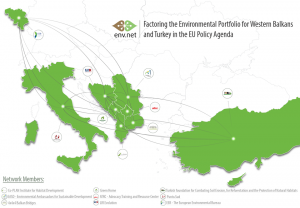
After 5 years of activity, the ENV-net today, counts for a member in each Instrument for Pre-accession Assistance country, this includes two newly joined organisations from Montenegro, and Bosnia and Herzegovina which co-operate with the network since 2016. The network is supported by partners in Italy – punto.sud and Belgium – European Environmental Bureau – EEB, both bringing to the network experience and best practices from two EU member states, as well as the possibility to align with similar ongoing initiatives within the EU.
Why ENV-net factoring the environmental portfolio for Western Balkans and Turkey in the EU Policy Agenda?
Recent natural occurrences such as repeated massive floods, and the EU accession obligations the Western Balkans and Turkey region must fulfil, highlight the immediacy of action required in the field of climate change and environmental protection.
For it to be effective, such action requires a solid pan-regional commitment in monitoring, advocating and awareness raising in home countries and engagement in policy- discussions at EU level. It also requires well-established and qualified civil society and media actors to generate positive pressure on the relevant institutions, and keep the citizens informed in a way that is accessible and actionable.
Studies show that, despite efforts made in this regard, the Western Balkan and Turkey region faces a number of challenges impeding progress, such as: limited local buy-in of the reforms, conflicting legislation, lack of a critical mass that can monitor developments and exert pressure on policy-makers, weak dialogue with institutions, poor understanding and coverage of climate change and environmental news, and very sparse resonance with current EU environment-related discussions such as circular economy aspects.
In response to these needs, ENV-net, as a proven regional network and advocacy actor, in the forthcoming three years will work on improving evidence-based policy-making and policy-influencing on climate change and environmental legislation in each of the ENV.net partner countries.
The network focus will be to generate region-representative evidence-supported input to contribute to EU discussions on matters of climate change and environment, and to explore and introduce to the region new inter-related aspects such as circular economy.
In the process, the network foresees to also technically and financially support civil society organisations and media in each of the network partner countries, to better understand and work on these issues.
The action is supported by the European Commission through the programme for Consolidating Regional Thematic Networks of Civil Society Organisations
ENV.net team is inviting you to follow and join efforts. Stay tuned!
2018!…..With activity highlights from 2017!
Activity important milestones in 2017
EASD activities are focused to 3 thematic groups:
- Promoting sustainable development; Agenda 2030 and SDGs;
- Environment and Natural Resources; Climate action; Advancing policy integration ; Advancing science/technology/innovation integration; Environmental Security and Justice;
- Building partnerships; Raising awareness on emerging issues; Working with civil society and non-state actors
Promoting sustainable development; Agenda 2030 and SDGs:
Initiative: End mercury use in dentistry by 2022, civil society challenge European Union
EASD participate at UNEA3, Nairobi, Nov-Dec 2017
EASD participate: Summit to Plan the End of Amalgam in Europe 2017– November 20-21, Berlin
EASD participate: IPEN Regional meeting, Prague 16-20 October 2014
“Make Mercury History” – EASD participated at Minamata COP1 in Geneva
Climate Change Education for Sustainable Development
2017 International Year of Sustainable Tourism for Development
EASD participate at 2017 Vienna UN Conference – Implementing the 2030 Agenda
Environment and Natural Resources; Climate action; Advancing policy integration ; Advancing science/technology/innovation integration; Environmental Security and Justice:
Initiative: End mercury use in dentistry by 2022, civil society challenge European Union
Good signal: Serbia gets (again) separate Ministry of environmental protection
Climate Change Education for Sustainable Development
“EnE17 – The 13th Regional Conference Environment to Europe” announcement: Climate Change Education
Building partnerships; Raising awareness on emerging issues; Working with civil society and non-state actors:
Initiative: End mercury use in dentistry by 2022, civil society challenge European Union
EASD participate at UNEA3, Nairobi, Nov-Dec 2017
EASD participate at 2017 Blue Flag National Operator Meeting
Eko-paket – Eco-Schools annual conference for the school year 2017/2018
EASD participate: IPEN Regional meeting, Prague 16-20 October 2014
EASD become the Member of the Western Balkans Youth Cooperation Platform!
Civil Society Forum in Trieste, 11-12 July 2017 – we (EASD) participate
Good signal: Serbia gets (again) separate Ministry of environmental protection
Serbia: Blue Flag 2017 Ceremony at beach on “Belgrade Sea”
EnE17 Conference and Panel in Media
Mercury Initial Assessment in the Republic of Serbia Workshop – we participate
“Make Mercury History” – EASD participated at Minamata COP1 in Geneva
The first meeting of the Conference of the Parties to the Minamata Convention on Mercury (COP1) was held from 24 to 29 September 2017 at the International Conference Centre in Geneva, Switzerland. The first meeting of the Conference of the Parties has multiple objectives, including procedural, political and celebratory. COP1, as a milestone in the Minamata journey, provides a unique opportunity to raise global awareness of the Convention, in particular at a high level, and to focus attention on the far-reaching impacts that the successful implementation of the Convention will achieve. It is an historic opportunity to celebrate the Convention and the achievements to date and to provide motivation and momentum to all as they take the next steps towards full implementation.
The Minamata Convention addresses all aspects related to the use of mercury and sets out measures to:
• 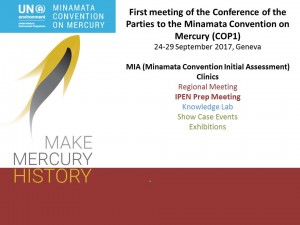 ban new mercury mines and phase-out existing ones;
ban new mercury mines and phase-out existing ones;
• reduce the use, emissions and releases of mercury from artisanal and small-scale gold mining and major industrial activities;
• phase-out and phase-down the use of mercury in a number of mercury-added products and processes, specifically its use in dental amalgam;
• restrict trade and prohibit the manufacture, import and export of mercury and a wide range of mercury-added products such as batteries or lights;
• control and reduce air emissions and land and water releases;
• ensure the safer storage and proper management of mercury waste.
Environmental Ambassadors for Sustainable Development (Environmental Ambassadors, EASD), as accredited organization, participated as the Observer.
EASD representative participated at IPEN Preparatory Meeting, Regional Meeting, Opening Ceremony, Thematic Session focus discussions on mercury as relevant to Land, MIA (Minamata Convention Initial Assessment) Clinics (where countries with UNEP, UNDP and UNIDO and partners showcase their MIA work, including lessons learned), as well as some Showcase Events and Knowledge Labs. To note that MIA for Serbia is under development (EASD contribute as stakeholder…). Also, EASD representative at Minamata COP1 communicate with official delegation of Serbia.
A “Hg-week” (“Mercury” week) coincide with COP1 and physically have its main hub in Geneva starting on Friday, 22 September and ending Thursday 28 September 2017. It featured a series of awareness raising events around the issue of Mercury. The objective of the “Hg-week” is to reach out to participants at COP1, as well as the public, students, and other experts and stakeholders interested in the field of chemicals and health.
SDGs as the relevant part of the context within which FEE operates
After a long series of intergovernmental negotiations on various themes,which saw a broad participation from major groups and civil society stakeholders under the guidance of the United Nations State Members, the Goals have been adopted on September 25th at the New York United Nations Summit by 193 Member States. In the same occasion, the UN launched their post-2015 development agenda, in which the Goals are integrated. UN Member States, the civil society and private sector contributors will use this new, universal set of goals, targets and indicators to guide development global efforts over the next 15 years in a concerted international action within the broadest, most ambitious development agenda ever agreed at the global level. The 17 Goals and 169 Targets are meant to be action-oriented, concise and easy to communicate, aspirational, global in nature and universally applicable to all countries, while taking into account the different national realities, capacities and levels of development and respecting national policies and priorities.
The Foundation for Environmental Education with its global network thus needs to frame and highlight its role as a stakeholder and trendsetter in the Sustainable Development process, particularly for environmental, educational and eco-tourism matters. The SDGs will define a relevant part of the context within which FEE operates, thus we are driven to reflect our work in the Goals.
FEE through its mission of fostering awareness, knowledge, participation, commitment, skills, actions and creativity on the environment and on sustainable development, shares the core values behind the set of SDGs. The programmes based on Education for Sustainable Development, such as YRE, Eco-Schools and LEAF show a strong link with the educational Goal (SDG 4) and the Goal on global partnership for sustainable development (SDG 17). FEE’s tourism eco-labels, Green Key and Blue Flag, on the other hand, have a focus on making human settlements inclusive, safe, resilient and sustainable (SDG 11) and on implementing tools for monitoring sustainable development impacts for tourism (SDG 12.b).
Thus, FEE as an umbrella organisation aims at reaching objectives as indicated in the SDGs:
– “Ensure healthy lives and promote well-being for all at all ages” (SDG 3).
– “Ensure inclusive and equitable quality education and promote life-long learning opportunities for all” (SDG 4).
– “Ensure availability and sustainable management of water..” (SDG 6),
– “Ensure access to affordable, reliable, sustainable, and modern energy for all” (SDG 7),
– “Conserve and sustainably use the oceans, seas and marine resources for sustainable development” (SDG14), as well as to
– “Protect, restore and promote sustainable use of terrestrial ecosystems..” (SDG 15).
– “Promote sustained, inclusive and sustainable economic growth..” (SDG 8), particularly to “..Implement policies to promote sustainable tourism which creates jobs, promotes local culture and products” (SDG 8.9).
– “Make cities and human settlements inclusive, safe, resilient and sustainable” (SDG 11).
– “Ensure sustainable consumption and production patterns” (SDG 12).
– “Take urgent action to combat climate change and its impacts” (SDG 13).
– “..Promote sustainable use of terrestrial ecosystems..” (SDG 15).
– “Promote peaceful and inclusive societies for sustainable development..” (SDG 16), particularly to build transparent institutions and promote non-discriminatory policies for sustainable development (SDGs 16.6, 16.b) with a positive, proactive, democratic modus operandi and a strong synergic support to civil society and third sector.
– “Strengthen the means of implementation and revitalize the global partnership for sustainable development” (SDG 17) through a geographically spread, multi-stakeholder approach.
Programmes’ overview:
a) YRE: Young Reporters for the Environment is a network of international youth engaged in environmental journalism and Education for Sustainable Development, where the students investigate an environmental problem and report it to the local community, while, at the international level, they may cooperate with young reporters from other countries for sharing information or data, with the aim of proposing a solution and disseminating it.
The most evident link between the Young Reporters for the Environment programme and the SDGs is found in the Goal 4:
“Ensure inclusive and equitable quality educationand promote lifelong learning opportunities for all” and its subparagraphs“..increase … the number of youth and adults who have relevant skills, including technical and vocational skills, for employment, decent jobs and entrepreneurship” (SDG 4.4) with the aim of learning to think critically, “ensure all learners acquire knowledge and skillsneeded to promote sustainable development, including among others through education for sustainable development and sustainable lifestyles, human rights, gender equality, promotion of a culture of peace and non-violence, global citizenship, and appreciation of cultural diversity and of cultures contribution to sustainable development” (SDG 4.7) for being able to connectwith concrete issues.
The environmental educational programme thus also wish for taking “action to combat climate change and its impacts” (SDG13), specifically for what concerns to “improveeducation, awareness raising and human and institutional capacity on climate change mitigation, adaptation, impact reduction, and early warning” (SDG 13.3) through active solution-oriented learning. The programme canalso help to“promote mechanisms for raising capacities for effective climate change related planning and management, in LDCs, including focusing on women, youth, local and marginalized communities” (SDG 13.b).
YRE is a network of young people educating for sustainable developmentand environmental issues in general, thus it also supportsthe aim of many other SDGs, such as:
“Promotesustainable agriculture” (SDG 2).
“Promote well-beingfor all at all ages” (SDG 3).
“Achieve gender equality and empowerall womenand girls” (SDG 5).
“Ensure availability and sustainable management of waterand sanitation for all”, supporting and strengthening the participation of local communities (SDG6)
“Ensure access to affordable, reliable, sustainable, and modern energyfor all”(SDG7)
“Promotesustained, inclusive and sustainable economic growth, full and productive employment and decent work for all”, developing measures that support creativity and innovation (SDG8)
“Build resilient infrastructure, promoteinclusive and sustainableindustrializationand fosterinnovation”enhancing scientific research (SDG9)
“Make cities and human settlements inclusive, safe, resilient and sustainable … Reduce the adverse per capita environmental impact of cities, including by paying special attention to air quality, municipal and other waste management”(SDG 11)
“Ensure sustainable consumption and production patterns”, raising awareness on sustainable development and lifestyles which are in harmony with nature (SDG12)
“Conserve and sustainably use the oceans seas and marine resources for sustainable development”, aiming to preventmarine pollution and protectmarine and coastal ecosystems (SDG14)
“Protect, restore and promote sustainable use of terrestrial ecosystems, sustainably manage forests, combat desertification, and halt and reverse land degradation and halt biodiversity loss”, promoting the implementation of sustainable management of the forests (SDG15)
YRE helps to “Promotepeaceful and inclusive societies for sustainabledevelopment..”(SDG16)
YRE can encourage to “..Revitalize the global partnership for sustainable development” (SDG17)
The journalistic piece can influence the local communities to take action on various environmental matters
b) ECO-SCHOOLS: A global student-led change process in Education for Sustainable Development which involves also teachers’ training, integration in the school curriculum, environmental reviews, action plans, monitoring and evaluation, informing and involving the local community, setting an eco-code focusing on the various environmental themes (water, energy, waste, global citizenship..).
The programme is fully in line with the Goals:
“Ensure inclusive and equitable quality education and promote lifelong learning opportunities for all” increasing the number of youth and adults with relevant skills and ensuring that all learners acquire knowledge for promoting sustainable development, developinga culture of peace and global citizenship while upgrading education facilities to child, disability and gender sensitive ones as to provide a safe, inclusive and effective learning environment for all(SDG 4)
“Make cities and human settlements inclusive, safe, resilient and sustainable”, strengthening efforts to safeguard the world’s cultural and natural heritagewith a focus on schools’ waste management, resource efficiency and climate change mitigation (e.g. Litter Less Campaign) (SDG 11)
“Strengthen the means of implementation and revitalize the global partnership for sustainable development” (SDG 17).
The implementation of the Eco-Schools programme also works towards the achievement of the aim of more SDGs, such as:
“Ensure healthy lives and promote well-beingfor all at all ages” (SDG 3)
“Ensure availability and sustainable management of water and sanitation for all”, improving water quality and water-use efficiency with pollution reduction, minimizing the release ofhazardous chemicals, halving the proportion of untreated wastewater,increasing recycling or safe reuse and ensuring sustainable withdrawals together with the strengthening of the participation of local communitiesfor such purposes (SDG 6)
“Ensure access to affordable, reliable, sustainable, and modern energy for all” increasing the share of renewable energy and energy efficiency, with the result of creating also savings (SDG 7)
“Promote sustained, inclusive and sustainable economic growth, full and productive employment and decent work for all”with the improvement of resource efficiency in consumption and production as to endeavour to decouple economic growthfrom environmental degradation (SDG 8)
“Build resilient infrastructure, promote inclusive and sustainable industrialization and foster innovation” (SDG 9)
“Ensure sustainable consumption and production patterns”, using the natural resources efficiently, reducing the waste generation (including the food waste) and managing sustainably the chemical products (SDG 12)
“Take urgent action to combat climate change and its impacts”specially improving education, awareness raising and capacity on climate change mitigation, adaptation, impact reduction and early warning (SDG 13)
“Protect, restore and promote sustainable use of terrestrialecosystems..” (SDG 15)
“Promotepeacefuland inclusivesocietiesfor sustainable development… and build effective, accountable and inclusive institutions at all levels” highlighting the theme ofsocial justice(SDG 16).
c) LEAF: Learning About Forests wants to encourage environmental education through awareness raising among students, teachers and the wider school community, to increase knowledge about the key role forests play for sustainable life on our planet, reflecting their cultural, ecological, economic and social functions, with themes as biodiversity, climate, products or services, codes and myths.
The key Goals linked to the Learning About Forests programme are:
“Ensure inclusive and equitable quality education and promote lifelong learning opportunities for all”, increasing the number of youths and adults who have relevant skills and ensuring that all learners (referring to the whole school community) acquire knowledge and skills needed to promote sustainable development, including through education for sustainable development and lifestyles in harmony with nature (SDG 4)
“Ensure availability and sustainable management of water..”, protecting water-related ecosystems and supporting the participation of local communitiesfor improving water management(SDG 6)
“Protect, restore and promote sustainable use of terrestrial ecosystems, sustainable manage forests, combat desertification, and halt and reverse land degradation and halt biodiversity loss”, ensuring a sustainable use of terrestrial and inland freshwater ecosystems and their services, including their biodiversity, in particular forests, wetlands mountains and drylands, preventing the extinction of threatened species(SDG 15)
The principles behind LEAF are compatible with the aim of more SDGs:
“End hunger, achieve food security and improved nutrition, and promotesustainable agriculture”, implementing agricultural practices, such as the tree-planting events, which help maintain ecosystems and progressively improve land and soil quality (SDG 2)
“Ensure healthy lives and promote well-being for all at all ages” (SDG3)
“Ensure access to affordable, reliable, sustainableand modern energyfor all” (SDG7)
“Promote sustained, inclusive and sustainable economic growth, full and productive employment..”, endeavouring to decouple economic growth from environmental degradation and devising policies that encourage sustainable tourism which promotes local culture and products, such as jobs related to the forest, while learning to respect the forest community as well as its myths, laws and codes (SDG8)
“Make cities and human settlements inclusive, safe, resilient and sustainable”, strengthening efforts to protect and safeguard the world’s cultural and natural heritage while supporting positive links between the urban and the rural areas as to widen the access to inclusive green and publicspaces (SDG11)
“Ensure sustainable consumption patterns” through relevant information and awareness for achieving sustainable management and efficient use of natural resources (SDG12)
“Take urgent action to combat climate change and its impacts” improving education and awareness raising on climatechange and the role of forests (SDG13)
“Strengthen the means of implementation and revitalize the global partnership for sustainable development” (SDG17).
d) BLUE FLAG: The world’s biggest voluntary eco-label for beaches, marinas and eco-tourism boats works towards sustainable development through compliance with criteria dealing with environmental education and information, environmental management, water quality, safety and other services.
The principles and rules of the programme comply with the content of many Goals:
“Ensure availability and sustainable management of water and sanitation for all”, improving water quality with pollution reduction and minimization of hazardous chemicals release, increasing recycling, safe reuse and water-use efficiency through the usage of sustainable withdrawals as to protect water-related ecosystems also with the support and participation of local communities (SDG 6)
“Promote sustained, inclusive and sustainable economic growth, full and productive employment and decent work for all”improving the resource efficiencyin consumption while devising and implementing policies to promote sustainable tourism which creates job, promotes local culture and products.Blue Flag focuses as well on the protection of labour rights together with the promotion of a safe and secure working environment and the prohibition of child labour (SDG 8)
“Build resilient infrastructure..”upgrading it as to be sustainable and equipped with clean technologies (SDG 9)
“by 2030 empower and promote the social, economic and political inclusion of all irrespective of age, sex, disability, race, ethnicity, origin, religion or economic or other status”with the aim of reducing inequalities and discriminatory practices for wages as social protection policies (SDG 10.2)
“Make cities and human settlements inclusive, safe, resilient and sustainable”enhancing capacities for participatory and sustainable human settlements as to strengthen the efforts for safeguarding the world’s cultural and natural heritage while providing universal access to the public spaces particularly for women and children, older persons and persons with disabilities(SDG 11)
“Ensure sustainable consumption and production patterns”for the efficient use of natural resources, through a sound management and reduction of chemicals and wastes and the promotion of sustainable public procurement practices (SDG 12)
“Conserve and sustainably use the oceans, seas and marine resources for sustainable development”preventing and reducing marine pollutionalso from land-based activities, addressing the impacts of ocean acidification and conserving coastal and marine areas. Blue Flags also contributes in increasing the economic benefits to SIDS and LDCs with the sustainable use of marine resources through tourism (SDG 14)
“Protect, restore and promote sustainable use of terrestrial ecosystems… halt and reverse land degradation and halt biodiversity loss” for halting the loss of biodiversity and preventing the extinction of threatened species, also through the integration of ecosystem values into local planning policies (SDG 15).
The implementation of the Blue Flag programme also work towards the aim of several more SDGs:
• “Ensure healthy lives and promote well-being for all at all ages” (SDG3)
• “Ensure inclusive and equitable quality education and promote lifelong learning opportunities for all”as education has a central role in the programme and reaches out for all the persons involved in it as well as for theusers (SDG4)
• “Achieve gender equality and empower all women and girls”(SDG5)
• “Ensure access to affordable, reliable, sustainable,and modern energy for all” to help increasing the share of renewable energy and energy efficiency(SDG7)
• “Take urgent action to combat climate change and its impacts”(SDG 13)
• “Promote peaceful and inclusive societies for sustainable development..”enforcing non-discriminatory policies for sustainable development (SDG16)
• Strengthen the means of implementation and revitalize the global partnership for sustainable development”through a multi-stakeholder partnership, which involves also public partnersand local authorities,where knowledge and expertise are shared (SDG17)
e) GREEN KEY: This eco-label for tourism facilities (hotels, campsites, small accommodations, tourist attractions and restaurants) is a voluntary award that aims at contributing to prevent climate change and reach sustainable tourism by awarding and promoting best practice, with the goal of changing the environmental practices at the awarded establishments but also the behaviour of tourism actors, including guests, staff, suppliers, authorities, local communities so to involve them in increasingly safeguarding their own environment. The focus is on themes such as environmental management, water, waste and energy saving, involvement and awareness of guests and staff, management of food and beverage and open spaces.
For what concerns the part of the programme related to environmental management, the Goals mainly involved are:
“Ensure … sustainable management of water..” improving its quality, having the proportion of untreated wastewater, increasing recycling, safe reuse and sustainable withdrawals of freshwater (SDG 6)
“Build resilient infrastructure, promote inclusive and sustainable industrialization and foster innovation”setting rules for developing or upgrading quality infrastructures to support economic development and human well-being for an increased resource use efficiency and greateradoption of clean technologies (SDG 9)
“Make … human settlements inclusive, safe, resilient and sustainable”paying attention to air quality, indoor environment and waste management as to tackle climate change(SDG 11)
“Ensure sustainable consumption and production patterns”with rules for achieving sustainable management of natural resources,respecting eco-criteria for food and beverages, reducing waste generationand achieving environmentallysound management of chemicals (SDG 12).
This way the programme “develops and implements tools to monitor sustainable development impacts for sustainable tourism which creates jobs, promotes local culture and products” (12.b).
As an eco-tourism programme focused on the environmental awareness of staff and guests, the Goals principally involved are:
“Ensure healthy lives and promote well-being..” where the programme has to encourage the users to take part in green activities (SDG 3)
“..ensure all learners acquire knowledge and skills needed to promote sustainable development, including among others through education for sustainable development and sustainable lifestyles, human rights..” as part of the “educational Goal” (number 4), whereby the learners are the recipients of the environmental information expected in the implementation of the programme (SDG 4.7)
“Promote sustained, inclusive and sustainable economic growth, full and productive employment and decent work for all”, as the Green Key programme sets Corporate Social Responsibility and safety rules for the workers(SDG 8)
“Take urgent action tocombat climate change and its impacts”through a reduced environmental impact but also through the improvement of education and awareness raising for both the facilities’ staff and users (SDG 13)
“..revitalize the global partnership for sustainable development” (SDG 17).
We participate on Green Key national operator meeting 2014
Green Key national operators from 31 countries gathered on 20-21 October 2014 to discuss the future development of the Green Key programme.

The 2014 Green Key national operator meeting took place on 20-21 October 2014 in Rethymno, Crete, Greece.
The Green Key national operators from 31 countries from Europe, Caribbean, Mexico, Africa, Middle East and Japan gathered for two days to discuss the status and the future development of Green Key.
The main issues for the cooperation were the revision of the Green Key criteria, Green Key audits, environmental education and awareness raising in Green Key, PR of Green Key, international cooperation partners and the sharing of best practise examples from different countries.
Green Key International would like to thank the Municipality of Rethymno and the Hellenic Society for the Protection of Nature (the organisation in charge of Green Key in Greece) for organising and hosting the event.
Environment in youth policy in Serbia
Presentation of the project “Environment in youth policy in Serbia” was done on 13. February, 2014. , at the Youth Center in Belgrade. The idea of the project is to strengthen the capacity of local youth offices and youth organizations, as well as raising the awareness of young people in Serbia about the environmental isues, specific problems in Serbia, the possibilities of participation and practical contributions in preserving environmental values at the national and local levels. After the presentation of the project, the winners of the competition “Green stamp” and “Green activist” were awarded.
EASD in the Global Alliance to Eliminate Lead Paint: 2013 International Lead Poisoning Prevention Week of Action
EASD, as the CSO National SAICM focal point, active participated in the 2013 International Lead Poisoning Prevention Week of Action, October 20-26, 2013 (Color pencils with and without lead).
On October 22, at 11:00, EASD/ENV.net Serbia Team participated in the central event in Serbia in, the Institute of the Public Health of Serbia – Agenda of the event : program skupa
On October 23. from 9:45 in Eco-School OŠ “Drinka Pavlović” ,Beograd , EASD team, in partnership with the APOS , gave a public lecture on “The sources of lead in the environment” , related lead in environment and lead poisoning (by different pencils and paint products). Our hosts and audience were biology professor Tatiana Tursijan, chemistry professor Dragana Ilic, and 7. and 8. grade students.
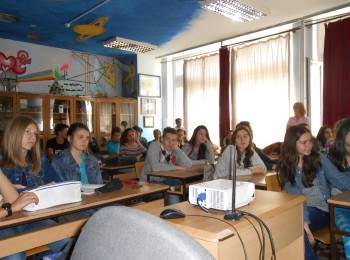
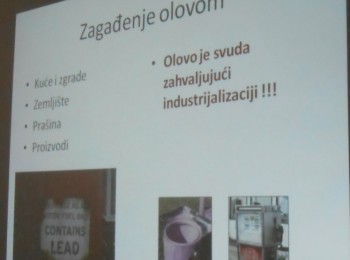 EASD presentation on lead from environmental angle : AOR Olovo 22.10.2013.
EASD presentation on lead from environmental angle : AOR Olovo 22.10.2013.
Events have media attention, for example.
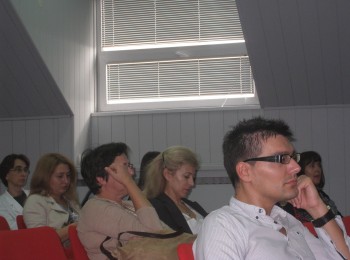 Lead is well-known toxic chemical with ability to harm human health and cause wide range of health disorders including neurological disorders, anaemia, tiredness and muscle weakness, paralysis, kidney and liver damage and stomach upsets. According to WHO assessments lead exposure is estimated to account for 0.6% of the global burden of disease, with the highest burden in developing regions.
Lead is well-known toxic chemical with ability to harm human health and cause wide range of health disorders including neurological disorders, anaemia, tiredness and muscle weakness, paralysis, kidney and liver damage and stomach upsets. According to WHO assessments lead exposure is estimated to account for 0.6% of the global burden of disease, with the highest burden in developing regions.
In children, the potential for adverse effects of exposure to lead is increased because of their physiological, metabolic and behavioural specificity. Lead can pose the risk to unborn child due to its possibility moves through placenta. Childhood lead exposure causes cognitive functions disorder resulted in about 600,000 new cases of children with intellectual disabilities every year. Latest scientific findings confirmed that there is no safe threshold for lead and that lead poisoning is entirely preventable.
The phasing out of lead from petrol, first in western Europe and later in central and eastern Europe, has resulted in a significant fall in blood lead levels in children over the last two decades. Nevertheless there are still a lot of sources of lead releases into environment such as industrial processes, paint, solder in canned foods and water pipes. It is still necessary to further reduce the levels of lead in the blood because there is no known safe level in children and pregnant women.
To facilitate action aim preventing of lead poisonings globally and especially exposure to lead from paint WHO together with UNEP created Global Alliance to Eliminated Lead from Paint (GAELP) that includes United States Centres for Diseases Control, US EPA and International Paediatric Association as well as Who and UNEP. The GAELP aims to elimination of lead from paint till 2020 in the majority of countries.
To raise awareness about lead poisoning, highlight countries and partners’ efforts to prevent childhood lead poisoning and urge further action to eliminate lead paint WHO through the GAELP will facilitate an international campaign on lead poisoning prevention (with a focus on lead paint), to take place 20-26 October 2013. This will be a campaign involving voluntary country-led activities, and we are now at the stage where countries (and NGOs) can volunteer to take part.
In WHO European Region four public health institutions and poison centres in Albania, Georgia, Republic of Moldova, and Serbia and a number of non-governmental organizations located in Armenia, France, Kazakhstan, Kirgizstan, Republic of Moldova and Serbia registered events that they will organize during Lead Poisoning Prevention Week. The diversity of events that are planned reflect countries priorities in elimination of lead poisonings that for WHO/ Europe Member States includes awareness raising workshops with decision-makers, legislators, industry representatives, TV events and mass media publications, distribution of booklets, national conferences are planned in the participating countries. Interesting events such as exhibition on lead poisonings and screening of the preventive movie will take place in France. Clinical toxicologists will inform from CHRU Lilly (France) Poison Control Centre will send mail to approximately 1500 City halls and to Paediatricians and Child Professionals.
Action to eliminate leaded paints should take place in all countries.
Participation in two-day study tour for CSOs representatives
Office for Cooperation with Civil Society with the support of the OSCE Mission to Serbia organized a two-day study tour for CSOs representatives who are engaged in the field of protection and conservation of the environment,especially in terms of raising public awareness of the need to seal the flood as well as in activities related to the mapping of risks and developing plans to protect the environment from these natural disasters .
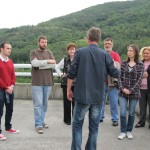
Purpose of this study tour was the promotion of enhanced mechanisms of public participation in the prevention and flood protection and mitigation of their consequences. The aim of these visits was CSOs capacity building for their greater involvement in decision-making related to water management. Dragana Grujičić, as the EASD representative, participated in this action.
Participants visited the following locations in Central and South Serbia: Lake Gruža, gravel pits near Kruševac and municipality Trgovište.